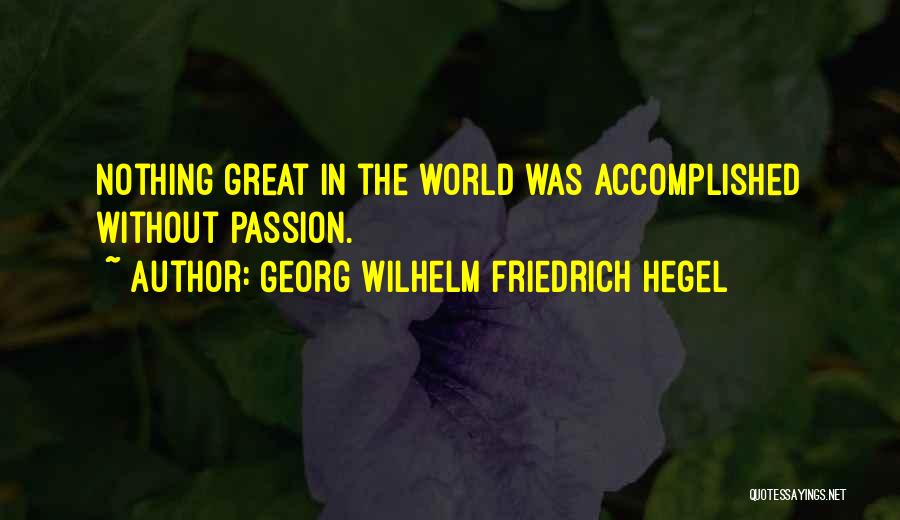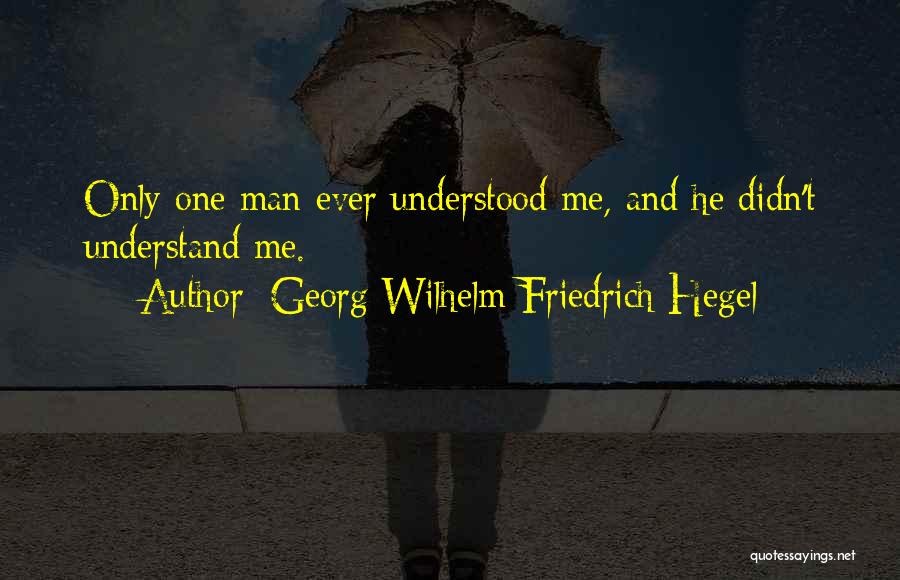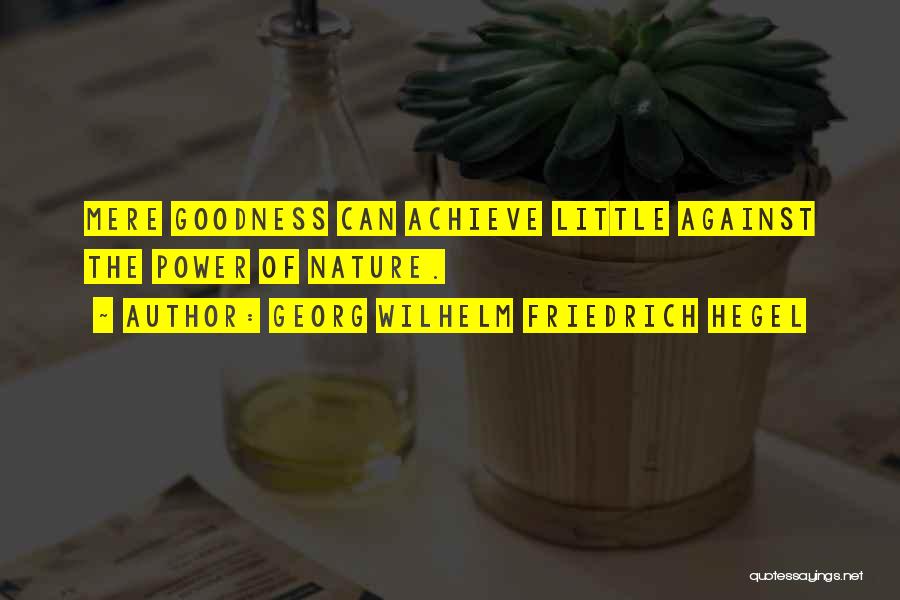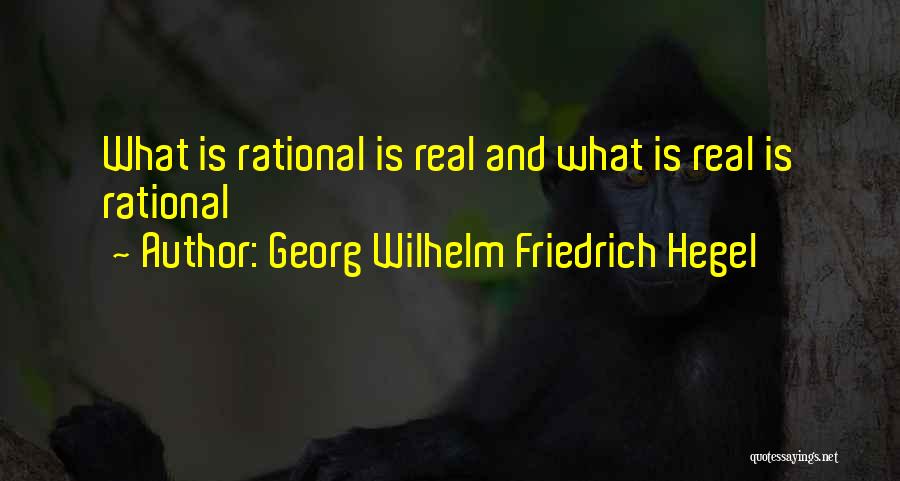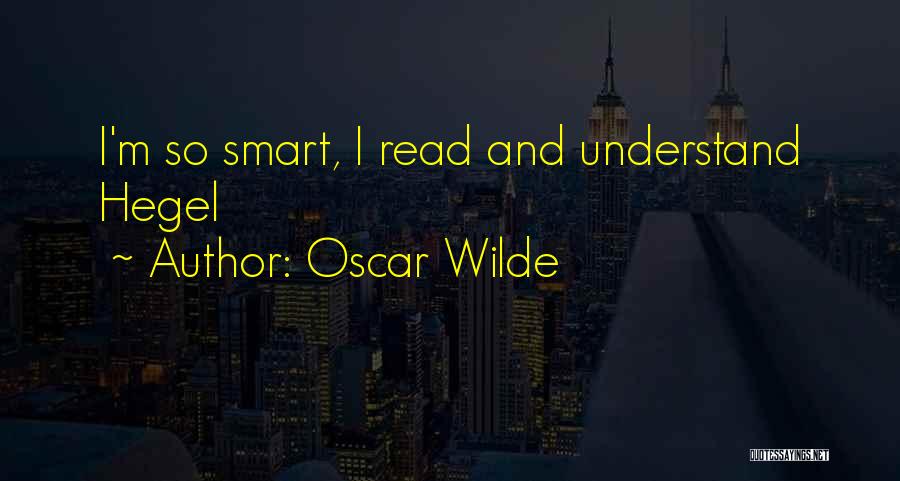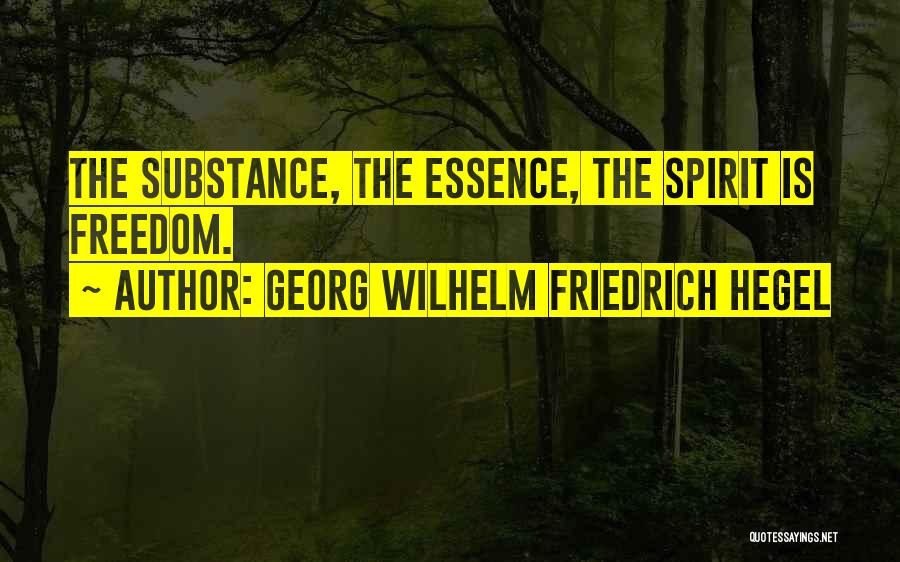Quotes & Sayings About Hegel
Enjoy reading and share 100 famous quotes about Hegel with everyone.
Top Hegel Quotes
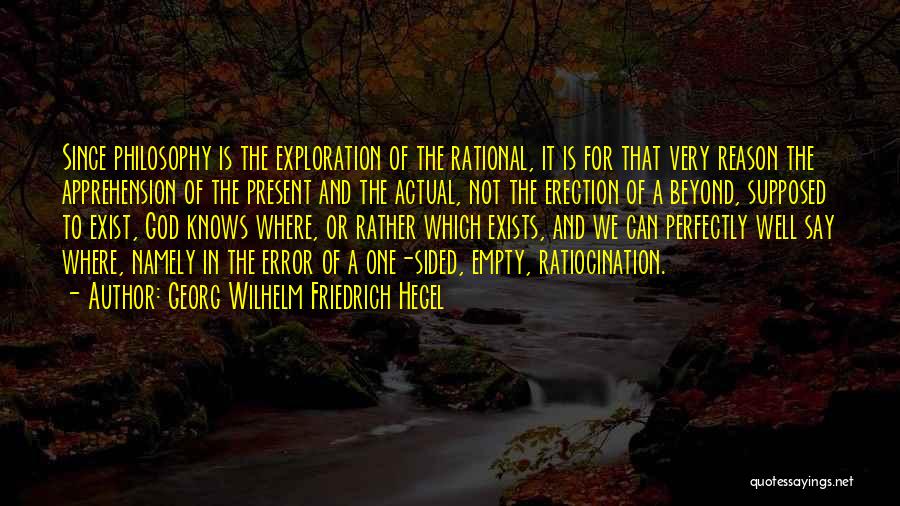
Since philosophy is the exploration of the rational, it is for that very reason the apprehension of the present and the actual, not the erection of a beyond, supposed to exist, God knows where, or rather which exists, and we can perfectly well say where, namely in the error of a one-sided, empty, ratiocination. — Georg Wilhelm Friedrich Hegel
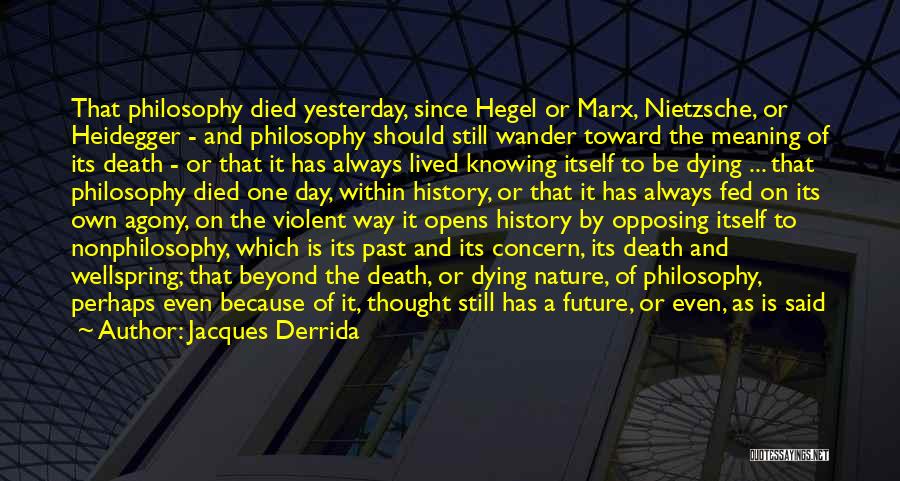
That philosophy died yesterday, since Hegel or Marx, Nietzsche, or Heidegger - and philosophy should still wander toward the meaning of its death - or that it has always lived knowing itself to be dying ... that philosophy died one day, within history, or that it has always fed on its own agony, on the violent way it opens history by opposing itself to nonphilosophy, which is its past and its concern, its death and wellspring; that beyond the death, or dying nature, of philosophy, perhaps even because of it, thought still has a future, or even, as is said today, is still entirely to come because of what philosophy has held in store; or, more strangely still, that the future itself has a future - all these are unanswerable questions. By right of birth, and for one time at least, these are problems put to philosophy as problems philosophy cannot resolve. — Jacques Derrida
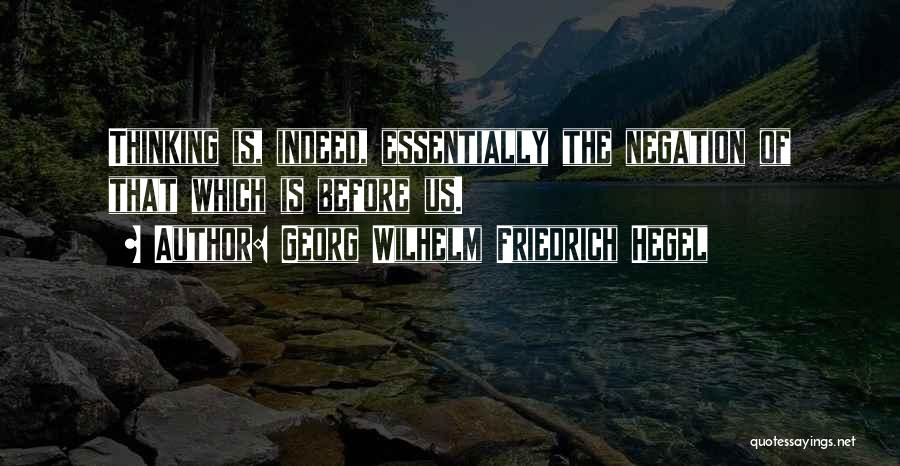
Thinking is, indeed, essentially the negation of that which is before us. — Georg Wilhelm Friedrich Hegel
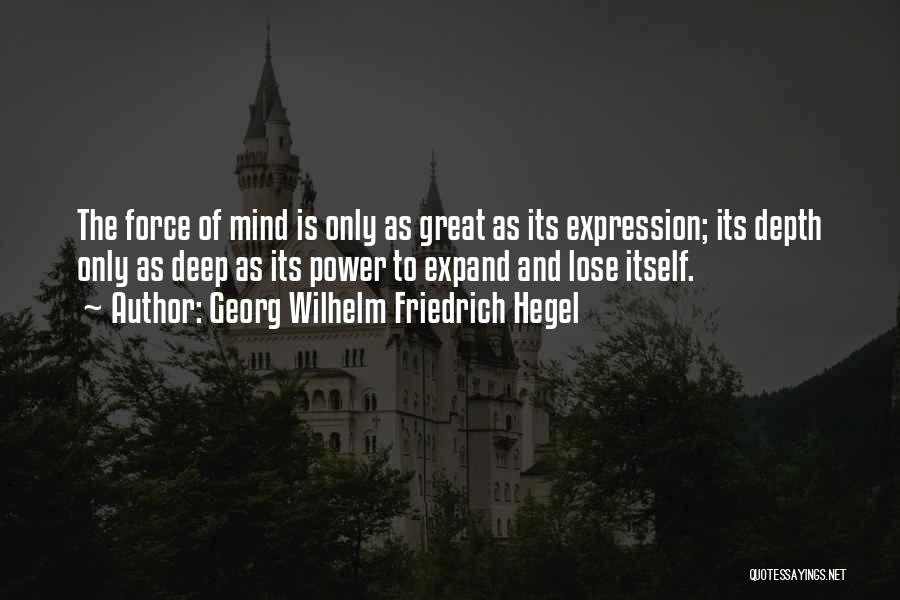
The force of mind is only as great as its expression; its depth only as deep as its power to expand and lose itself. — Georg Wilhelm Friedrich Hegel
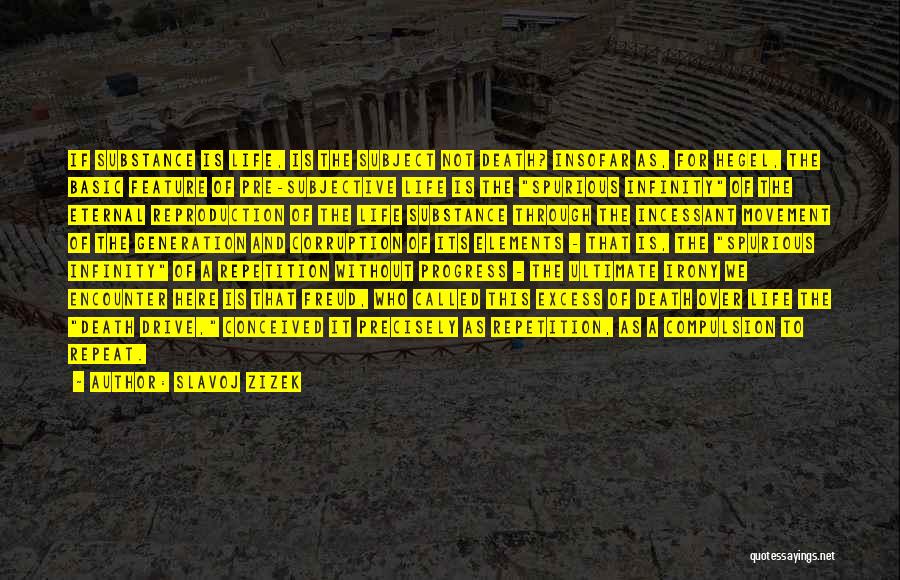
if Substance is Life, is the Subject not Death? Insofar as, for Hegel, the basic feature of pre-subjective Life is the "spurious infinity" of the eternal reproduction of the life substance through the incessant movement of the generation and corruption of its elements - that is, the "spurious infinity" of a repetition without progress - the ultimate irony we encounter here is that Freud, who called this excess of death over life the "death drive," conceived it precisely as repetition, as a compulsion to repeat. — Slavoj Zizek

[O]ne has to have endured a few decades before wanting, let alone needing, to embark on the project of recovering lost life. And I think it may be possible to review 'the chronicles of wasted time.' William Morris wrote in The Dream of John Ball that men fight for things and then lose the battle, only to win it again in a shape and form that they had not expected, and then be compelled again to defend it under another name. We are all of us very good at self-persuasion and I strive to be alert to its traps, but a version of what Hegel called 'the cunning of history' is a parallel commentary that I fight to keep alive in my mind. — Christopher Hitchens
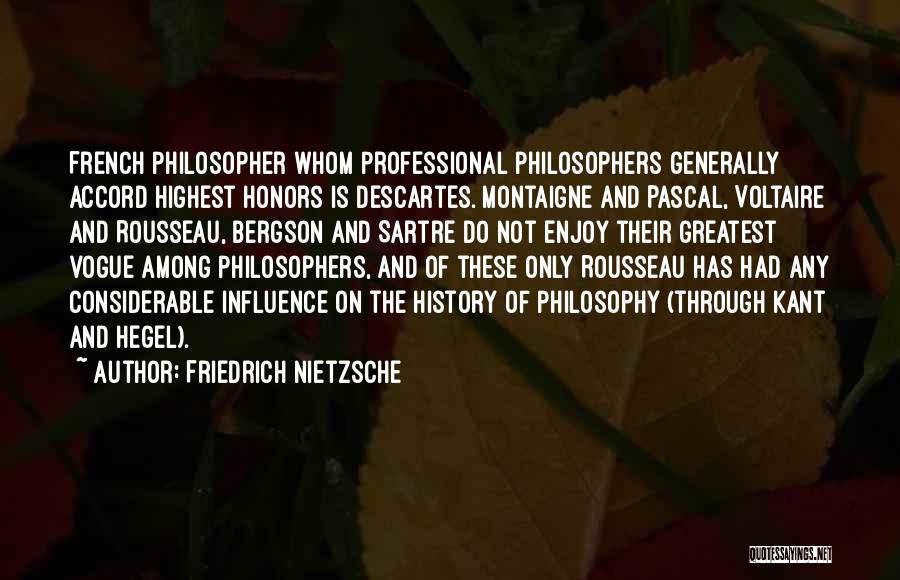
French philosopher whom professional philosophers generally accord highest honors is Descartes. Montaigne and Pascal, Voltaire and Rousseau, Bergson and Sartre do not enjoy their greatest vogue among philosophers, and of these only Rousseau has had any considerable influence on the history of philosophy (through Kant and Hegel). — Friedrich Nietzsche
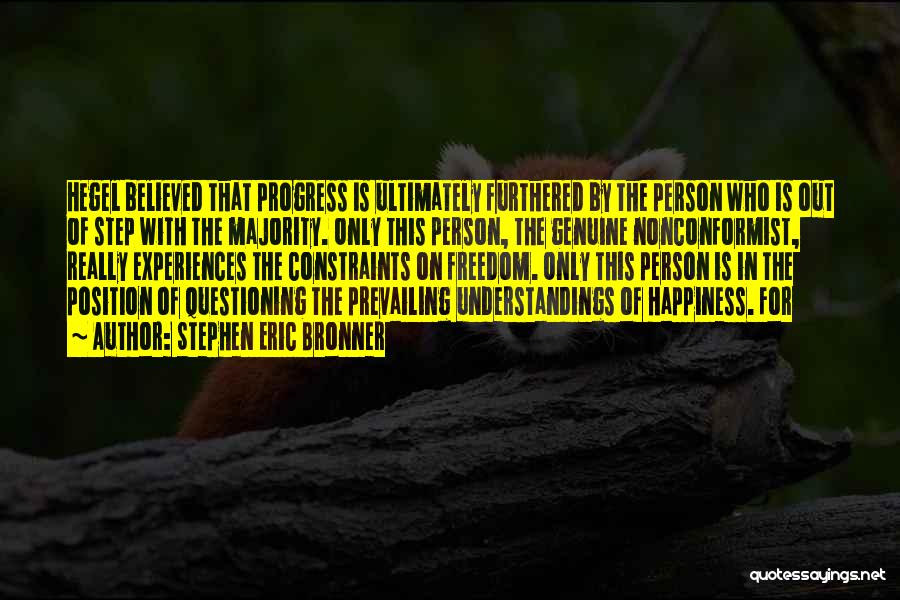
Hegel believed that progress is ultimately furthered by the person who is out of step with the majority. Only this person, the genuine nonconformist, really experiences the constraints on freedom. Only this person is in the position of questioning the prevailing understandings of happiness. For — Stephen Eric Bronner
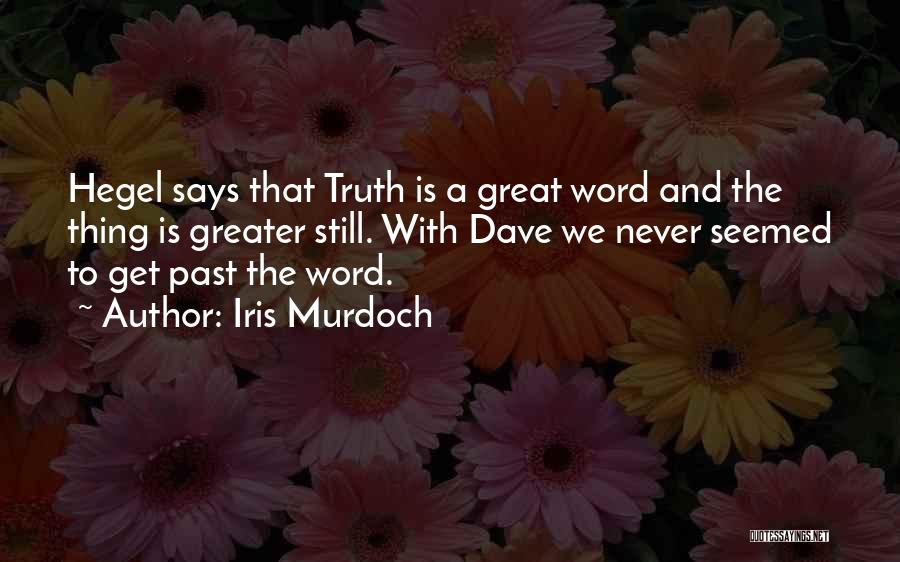
Hegel says that Truth is a great word and the thing is greater still. With Dave we never seemed to get past the word. — Iris Murdoch
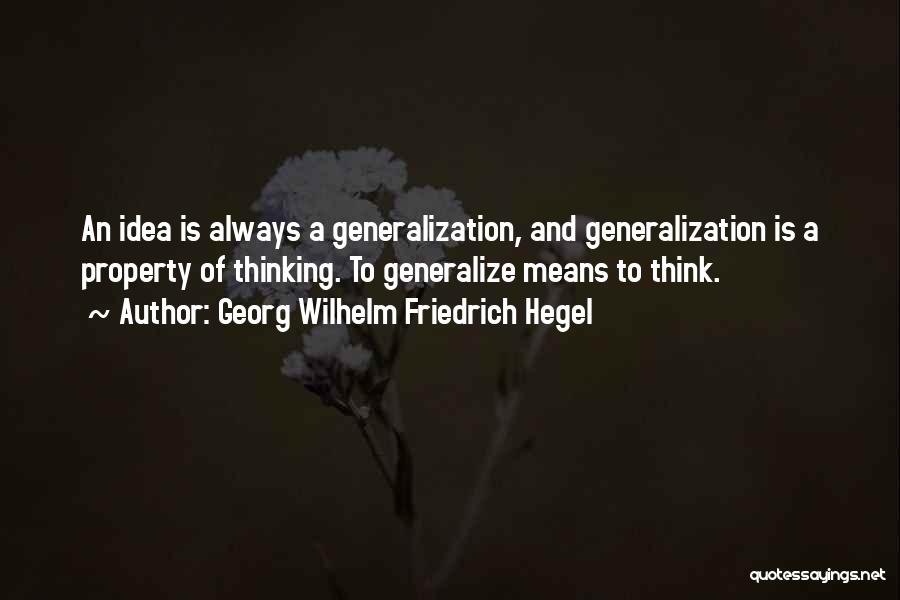
An idea is always a generalization, and generalization is a property of thinking. To generalize means to think. — Georg Wilhelm Friedrich Hegel
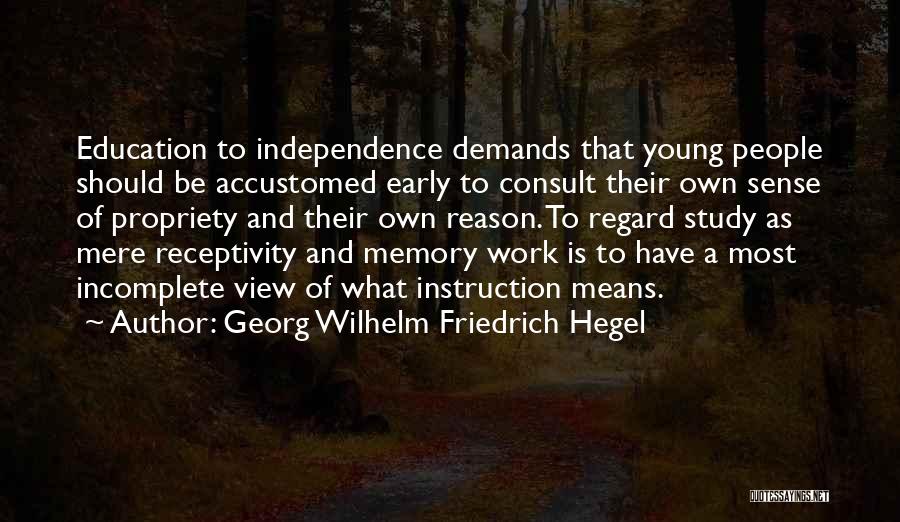
Education to independence demands that young people should be accustomed early to consult their own sense of propriety and their own reason. To regard study as mere receptivity and memory work is to have a most incomplete view of what instruction means. — Georg Wilhelm Friedrich Hegel
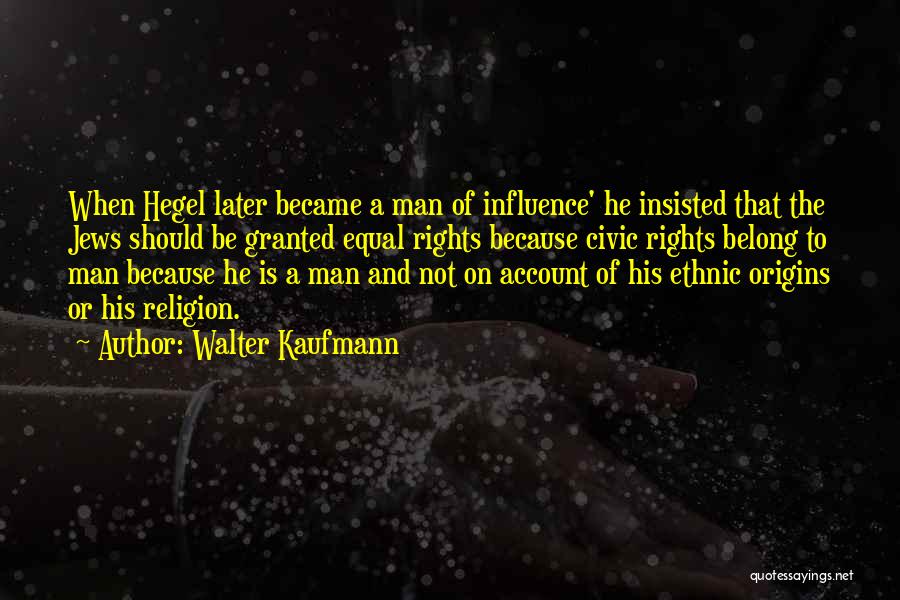
When Hegel later became a man of influence' he insisted that the Jews should be granted equal rights because civic rights belong to man because he is a man and not on account of his ethnic origins or his religion. — Walter Kaufmann
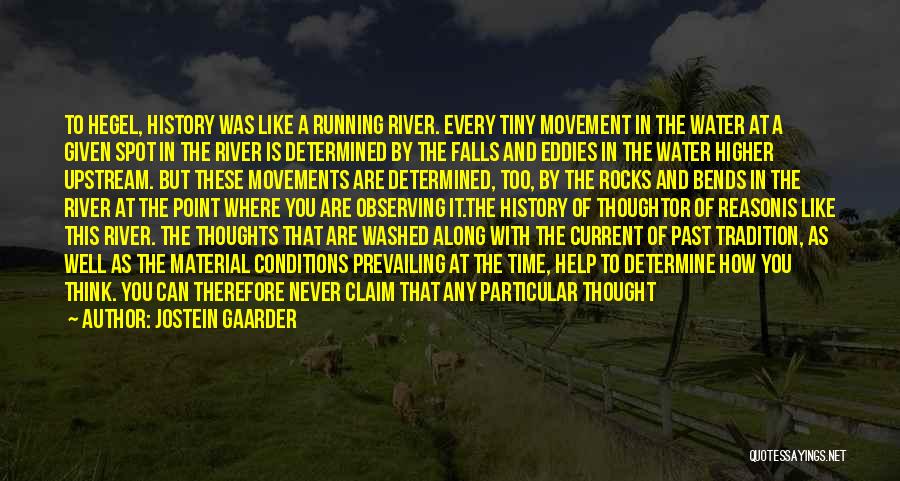
To Hegel, history was like a running river. Every tiny movement in the water at a given spot in the river is determined by the falls and eddies in the water higher upstream. But these movements are determined, too, by the rocks and bends in the river at the point where you are observing it.
the history of thought
or of reason
is like this river. The thoughts that are washed along with the current of past tradition, as well as the material conditions prevailing at the time, help to determine how you think. You can therefore never claim that any particular thought is correct for ever and ever. But the thought can be correct from where you stand — Jostein Gaarder
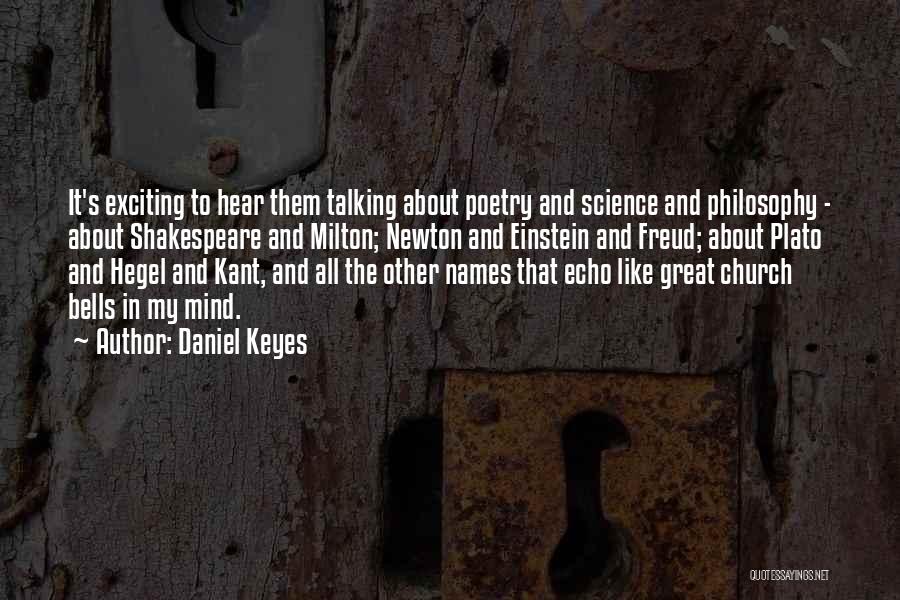
It's exciting to hear them talking about poetry and science and philosophy - about Shakespeare and Milton; Newton and Einstein and Freud; about Plato and Hegel and Kant, and all the other names that echo like great church bells in my mind. — Daniel Keyes
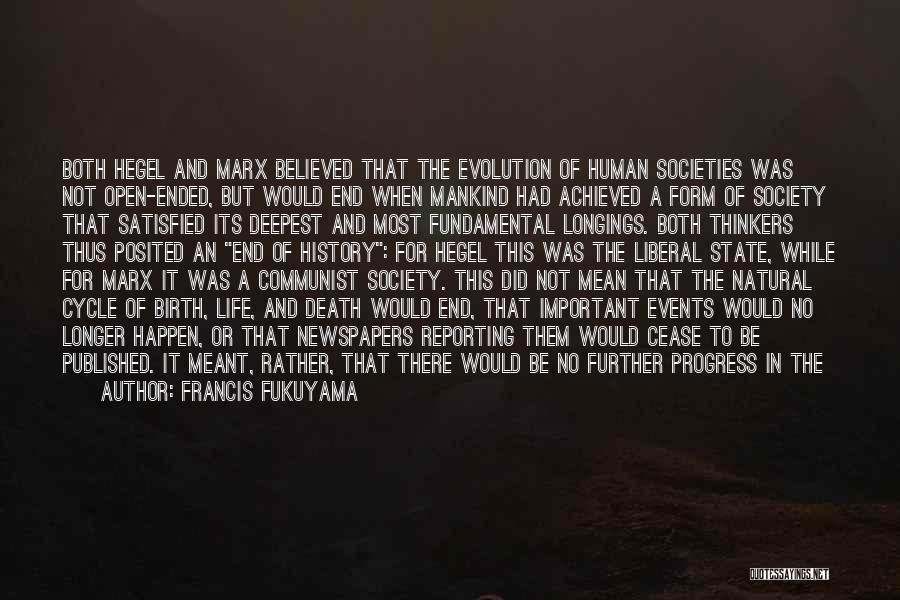
Both Hegel and Marx believed that the evolution of human societies was not open-ended, but would end when mankind had achieved a form of society that satisfied its deepest and most fundamental longings. Both thinkers thus posited an "end of history": for Hegel this was the liberal state, while for Marx it was a communist society. This did not mean that the natural cycle of birth, life, and death would end, that important events would no longer happen, or that newspapers reporting them would cease to be published. It meant, rather, that there would be no further progress in the development of underlying principles and institutions, because all of the really big questions had been settled. — Francis Fukuyama
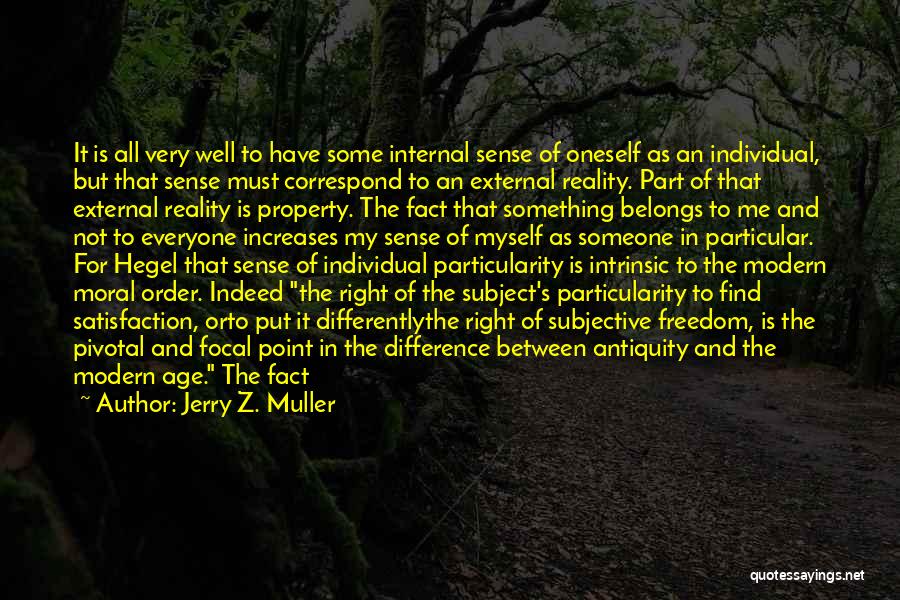
It is all very well to have some internal sense of oneself as an individual, but that sense must correspond to an external reality. Part of that external reality is property. The fact that something belongs to me and not to everyone increases my sense of myself as someone in particular. For Hegel that sense of individual particularity is intrinsic to the modern moral order. Indeed "the right of the subject's particularity to find satisfaction, or
to put it differently
the right of subjective freedom, is the pivotal and focal point in the difference between antiquity and the modern age." The fact that others do not take my property
that they regard it as mine
is also a way in which they recognize me as an individual. It is precisely this recognition that the slave, the bondsman, and the serf lack. That the right to own private property, to control some corner of the world, is universal in the modern state is for Hegel part of its glory. (p. 155) — Jerry Z. Muller
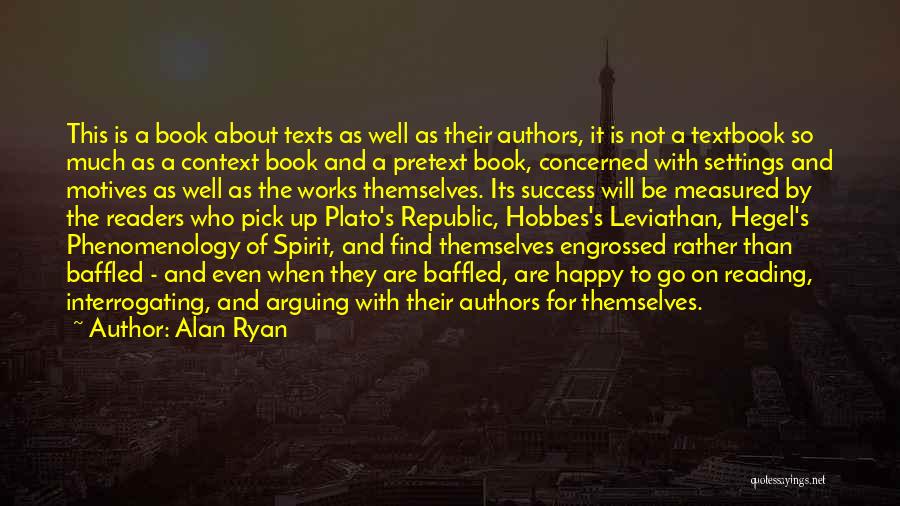
This is a book about texts as well as their authors, it is not a textbook so much as a context book and a pretext book, concerned with settings and motives as well as the works themselves. Its success will be measured by the readers who pick up Plato's Republic, Hobbes's Leviathan, Hegel's Phenomenology of Spirit, and find themselves engrossed rather than baffled - and even when they are baffled, are happy to go on reading, interrogating, and arguing with their authors for themselves. — Alan Ryan

When we walk the streets at night in safety, it does not strike us that this might be otherwise. This habit of feeling safe has become second nature, and we do not reflect on just how this is due solely to the working of special institutions. Commonplace thinking often has the impression that force holds the state together, but in fact its only bond is the fundamental sense of order which everybody possesses. — Georg Wilhelm Friedrich Hegel
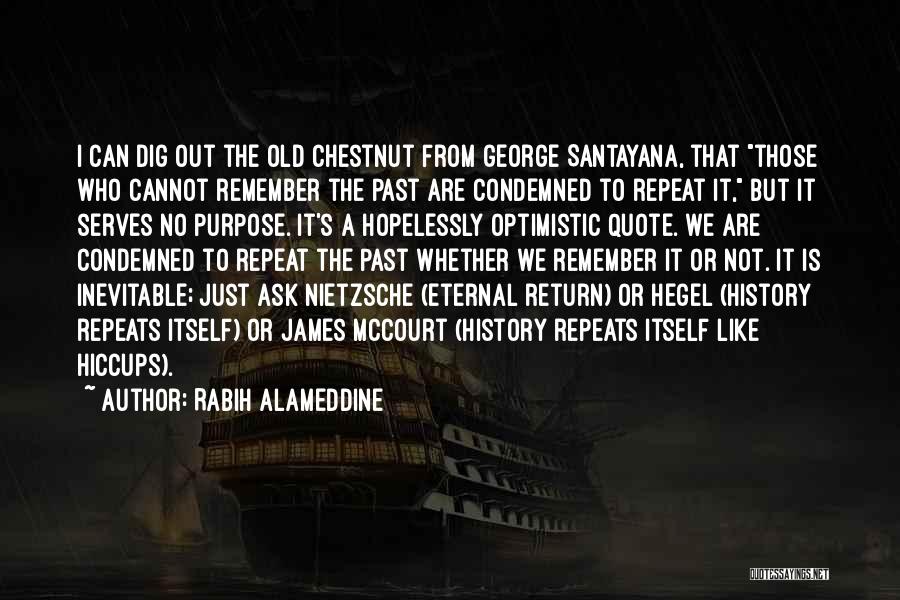
I can dig out the old chestnut from George Santayana, that "those who cannot remember the past are condemned to repeat it," but it serves no purpose. It's a hopelessly optimistic quote. We are condemned to repeat the past whether we remember it or not. It is inevitable; just ask Nietzsche (eternal return) or Hegel (history repeats itself) or James McCourt (history repeats itself like hiccups). — Rabih Alameddine
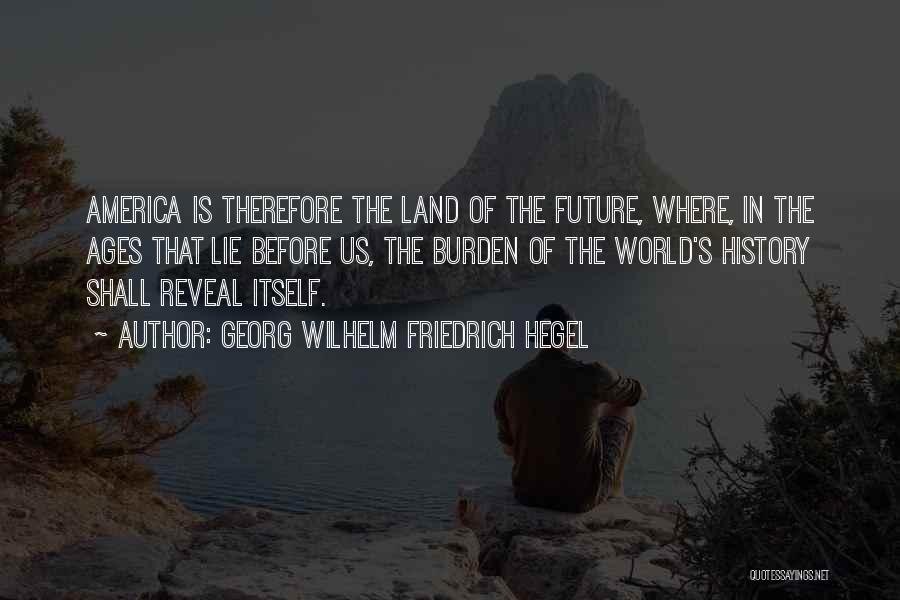
America is therefore the land of the future, where, in the ages that lie before us, the burden of the World's History shall reveal itself. — Georg Wilhelm Friedrich Hegel
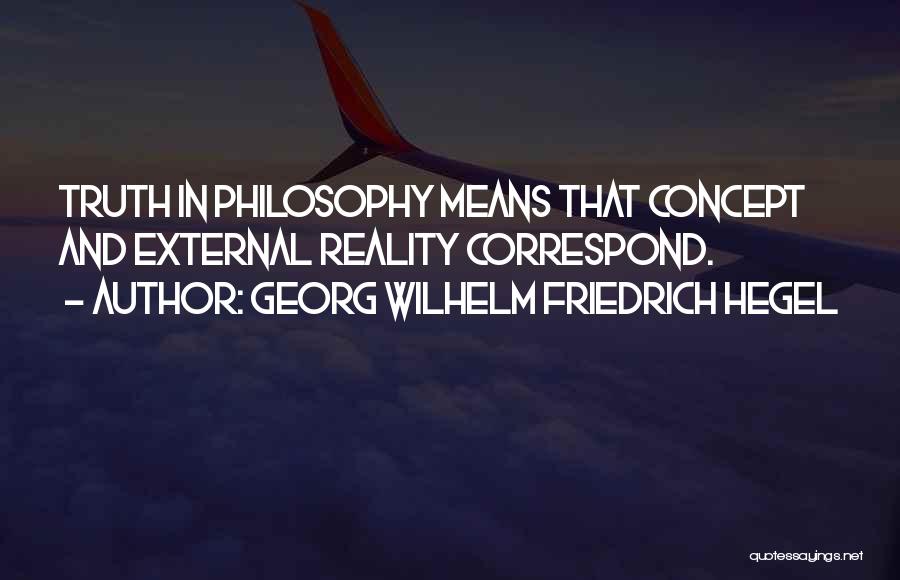
Truth in philosophy means that concept and external reality correspond. — Georg Wilhelm Friedrich Hegel
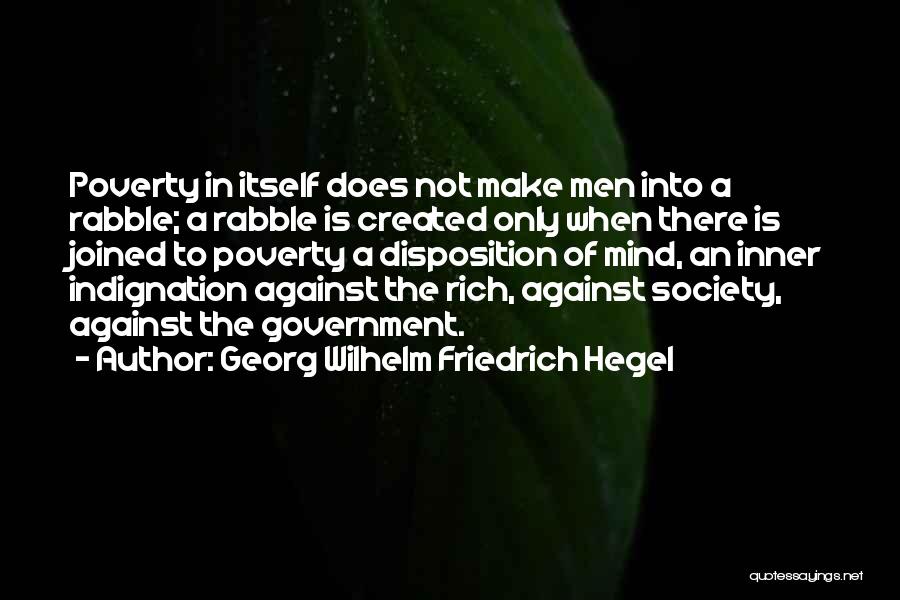
Poverty in itself does not make men into a rabble; a rabble is created only when there is joined to poverty a disposition of mind, an inner indignation against the rich, against society, against the government. — Georg Wilhelm Friedrich Hegel
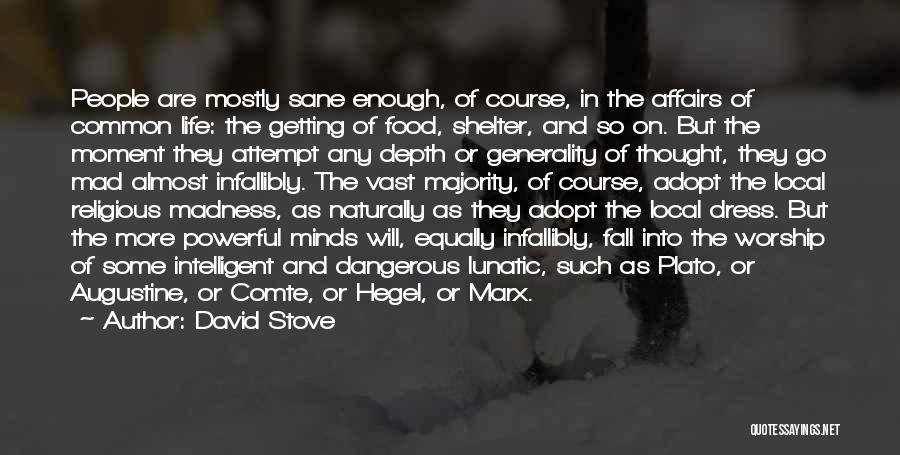
People are mostly sane enough, of course, in the affairs of common life: the getting of food, shelter, and so on. But the moment they attempt any depth or generality of thought, they go mad almost infallibly. The vast majority, of course, adopt the local religious madness, as naturally as they adopt the local dress. But the more powerful minds will, equally infallibly, fall into the worship of some intelligent and dangerous lunatic, such as Plato, or Augustine, or Comte, or Hegel, or Marx. — David Stove
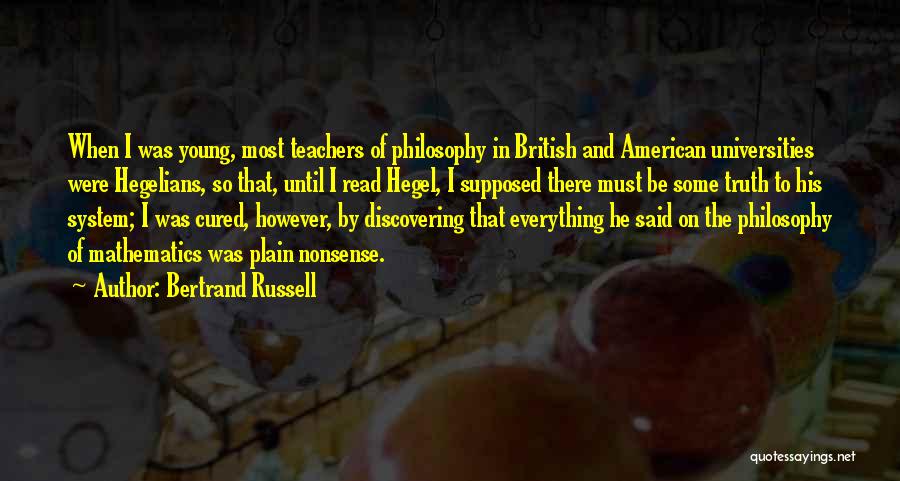
When I was young, most teachers of philosophy in British and American universities were Hegelians, so that, until I read Hegel, I supposed there must be some truth to his system; I was cured, however, by discovering that everything he said on the philosophy of mathematics was plain nonsense. — Bertrand Russell
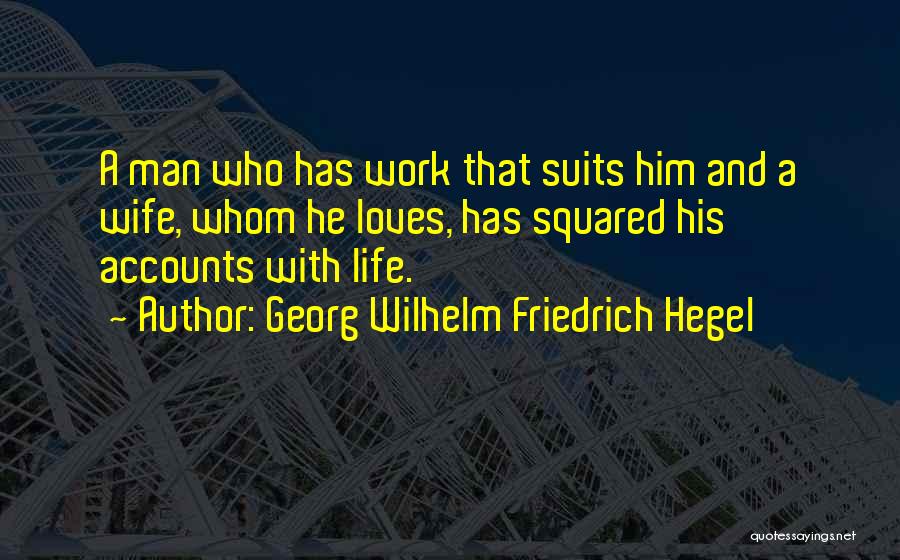
A man who has work that suits him and a wife, whom he loves, has squared his accounts with life. — Georg Wilhelm Friedrich Hegel
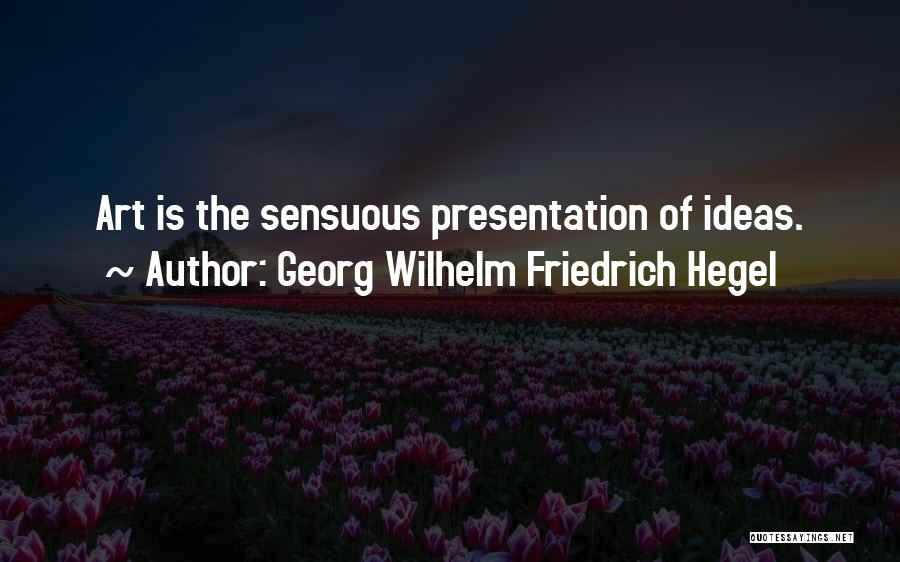
Art is the sensuous presentation of ideas. — Georg Wilhelm Friedrich Hegel
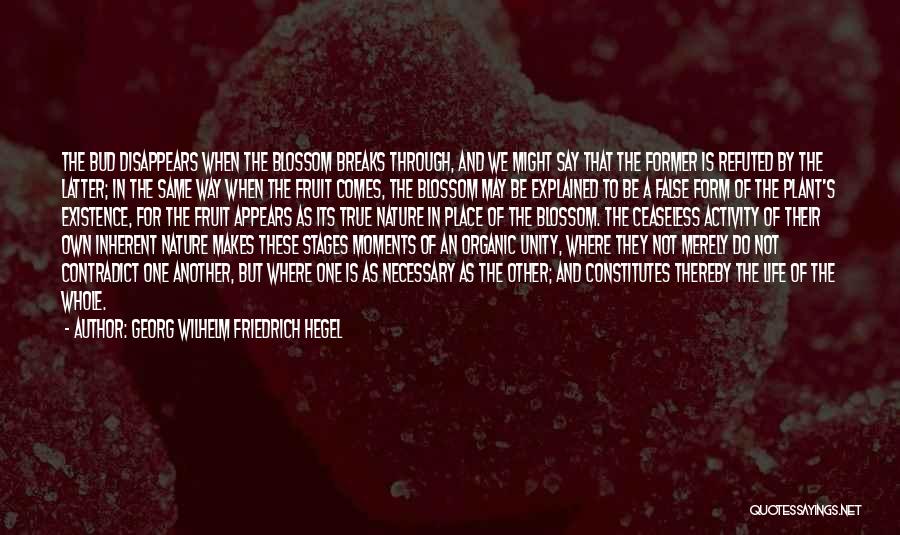
The bud disappears when the blossom breaks through, and we might say that the former is refuted by the latter; in the same way when the fruit comes, the blossom may be explained to be a false form of the plant's existence, for the fruit appears as its true nature in place of the blossom. The ceaseless activity of their own inherent nature makes these stages moments of an organic unity, where they not merely do not contradict one another, but where one is as necessary as the other; and constitutes thereby the life of the whole. — Georg Wilhelm Friedrich Hegel
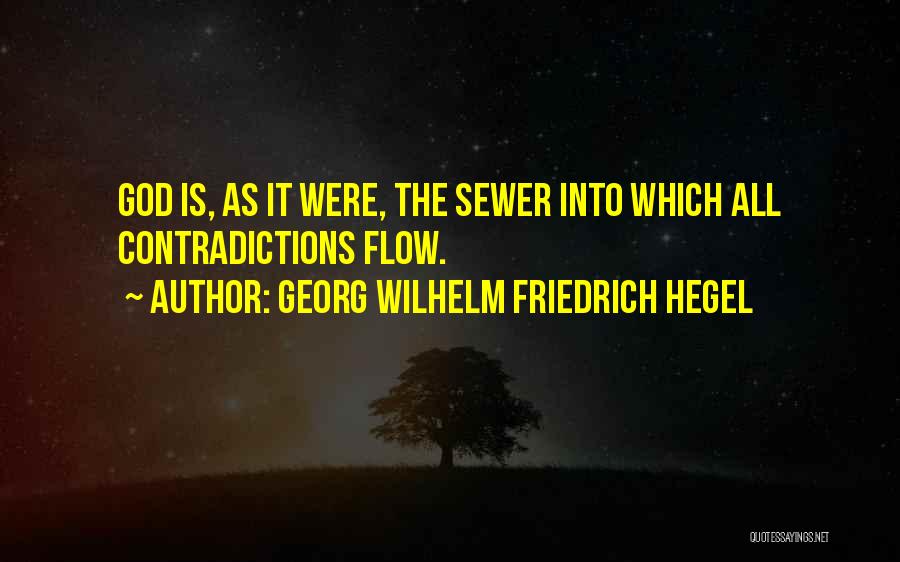
God is, as it were, the sewer into which all contradictions flow. — Georg Wilhelm Friedrich Hegel
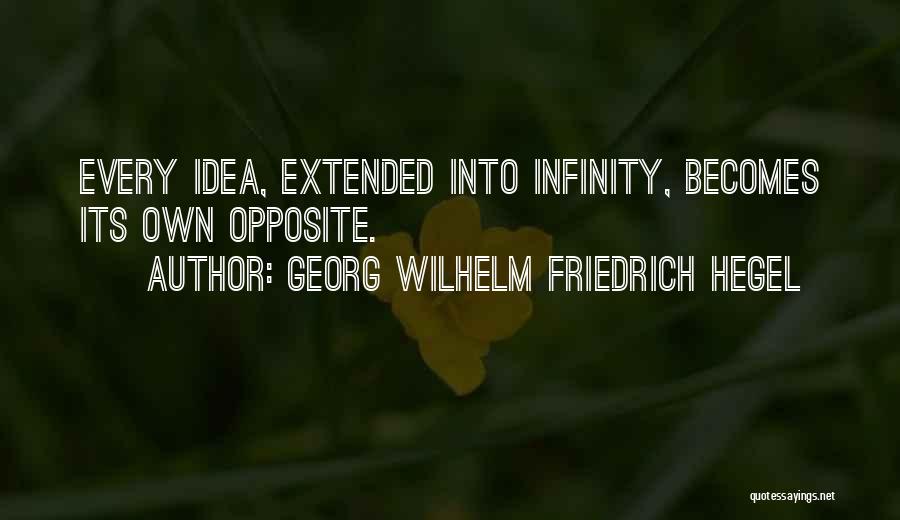
Every idea, extended into infinity, becomes its own opposite. — Georg Wilhelm Friedrich Hegel
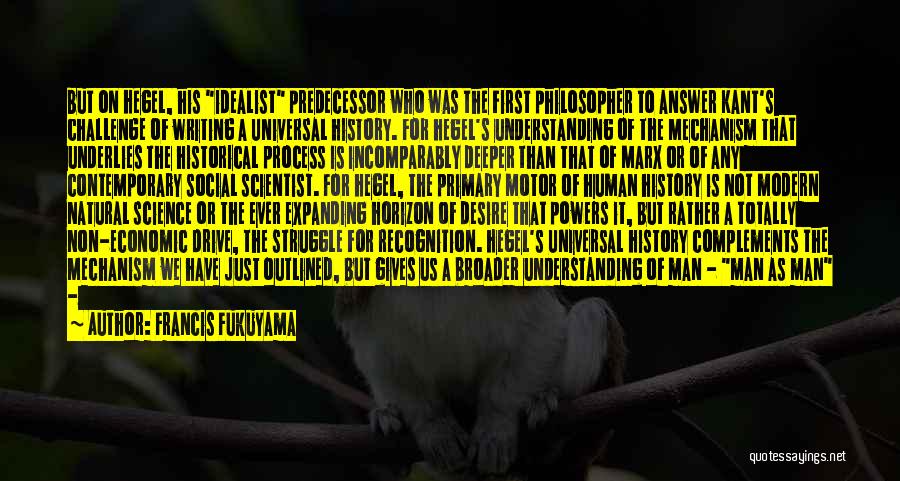
but on Hegel, his "idealist" predecessor who was the first philosopher to answer Kant's challenge of writing a Universal History. For Hegel's understanding of the Mechanism that underlies the historical process is incomparably deeper than that of Marx or of any contemporary social scientist. For Hegel, the primary motor of human history is not modern natural science or the ever expanding horizon of desire that powers it, but rather a totally non-economic drive, the struggle for recognition. Hegel's Universal History complements the Mechanism we have just outlined, but gives us a broader understanding of man - "man as man" - that allows us to understand the discontinuities, the wars and sudden eruptions of irrationality out of the calm of economic development, that have characterized actual human history. — Francis Fukuyama
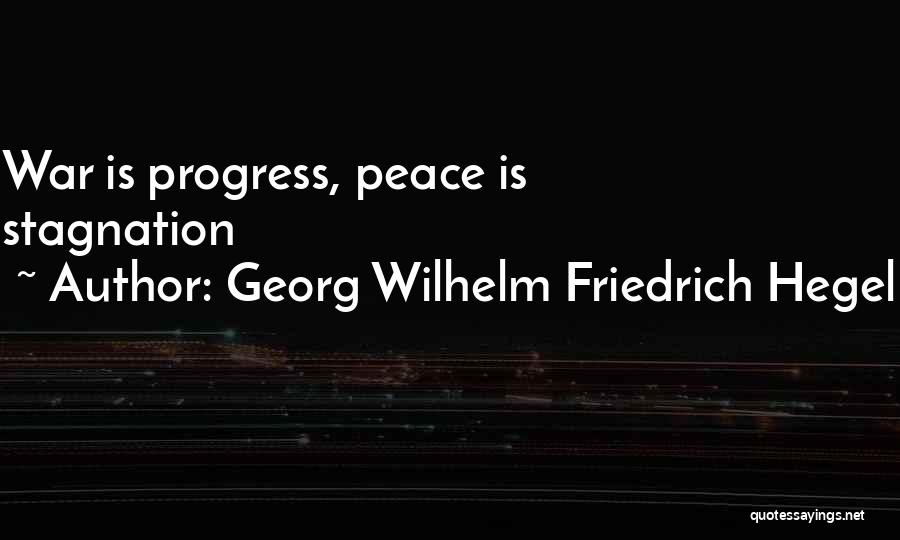
War is progress, peace is stagnation — Georg Wilhelm Friedrich Hegel
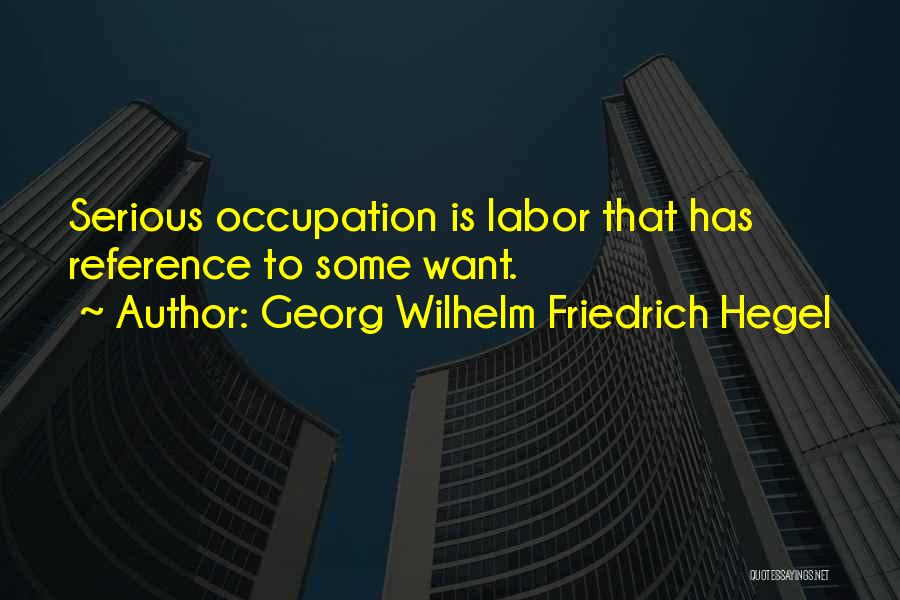
Serious occupation is labor that has reference to some want. — Georg Wilhelm Friedrich Hegel
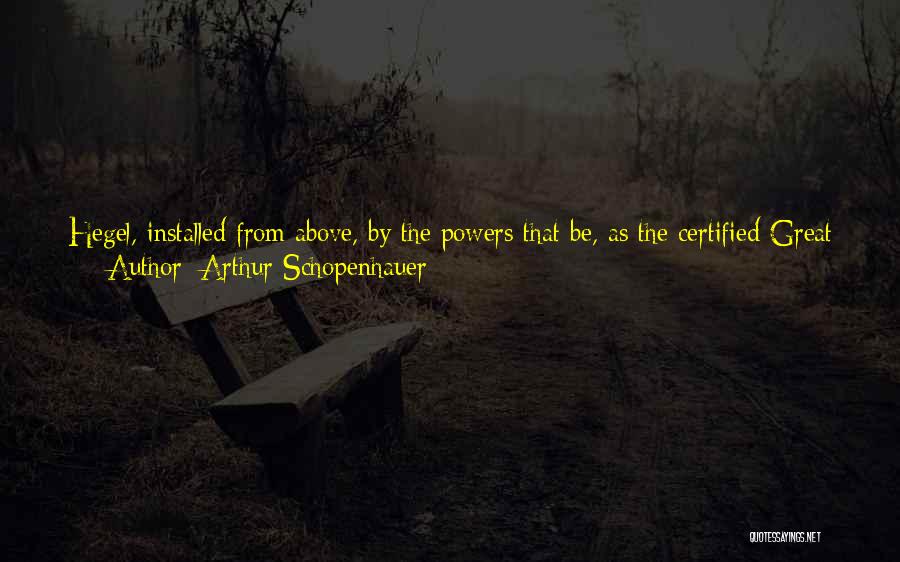
Hegel, installed from above, by the powers that be, as the certified Great Philosopher, was a flat-headed, insipid, nauseating, illiterate charlatan who reached the pinnacle of audacity in scribbling together and dishing up the craziest mystifying nonsense. — Arthur Schopenhauer
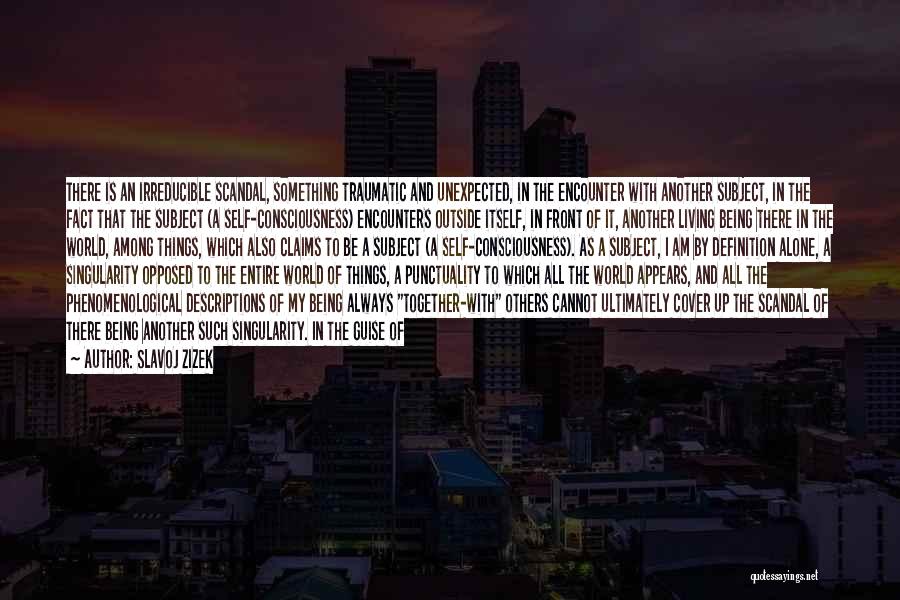
There is an irreducible scandal, something traumatic and unexpected, in the encounter with another subject, in the fact that the subject (a self-consciousness) encounters outside itself, in front of it, another living being there in the world, among things, which also claims to be a subject (a self-consciousness). As a subject, I am by definition alone, a singularity opposed to the entire world of things, a punctuality to which all the world appears, and all the phenomenological descriptions of my being always "together-with" others cannot ultimately cover up the scandal of there being another such singularity. In the guise of a living being in front of me which also claims to be a self-consciousness, infinity assumes a determinate form"- Hegel, — Slavoj Zizek
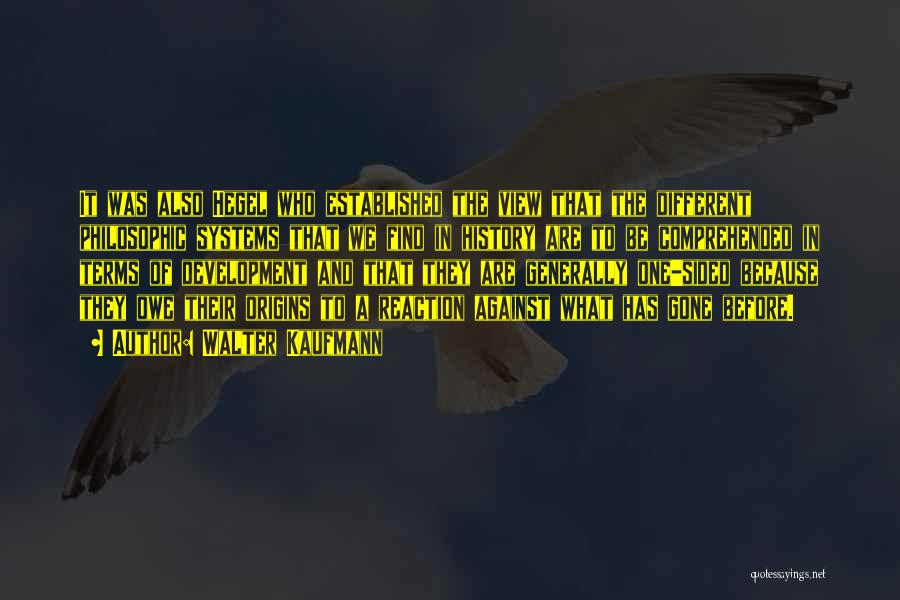
It was also Hegel who established the view that the different philosophic systems that we find in history are to be comprehended in terms of development and that they are generally one-sided because they owe their origins to a reaction against what has gone before. — Walter Kaufmann
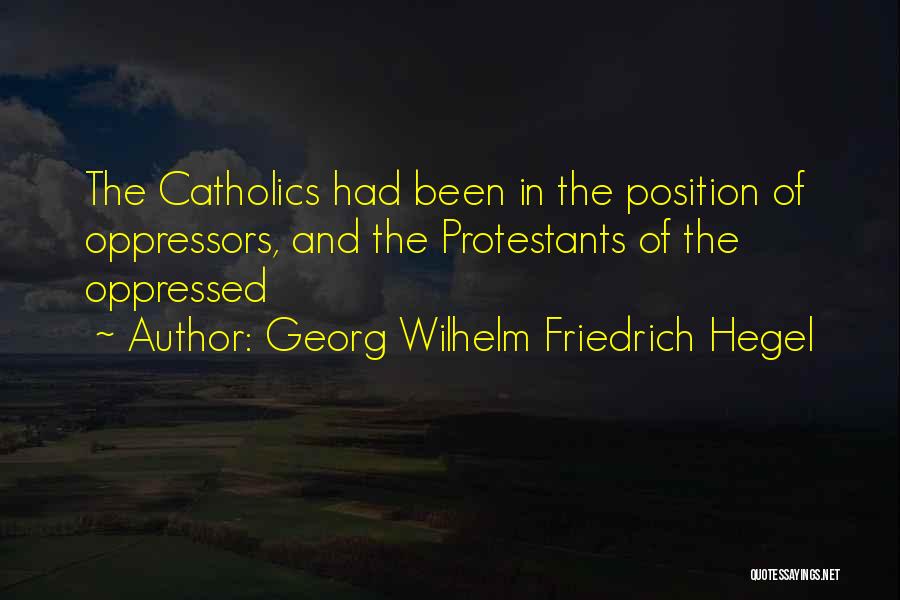
The Catholics had been in the position of oppressors, and the Protestants of the oppressed — Georg Wilhelm Friedrich Hegel
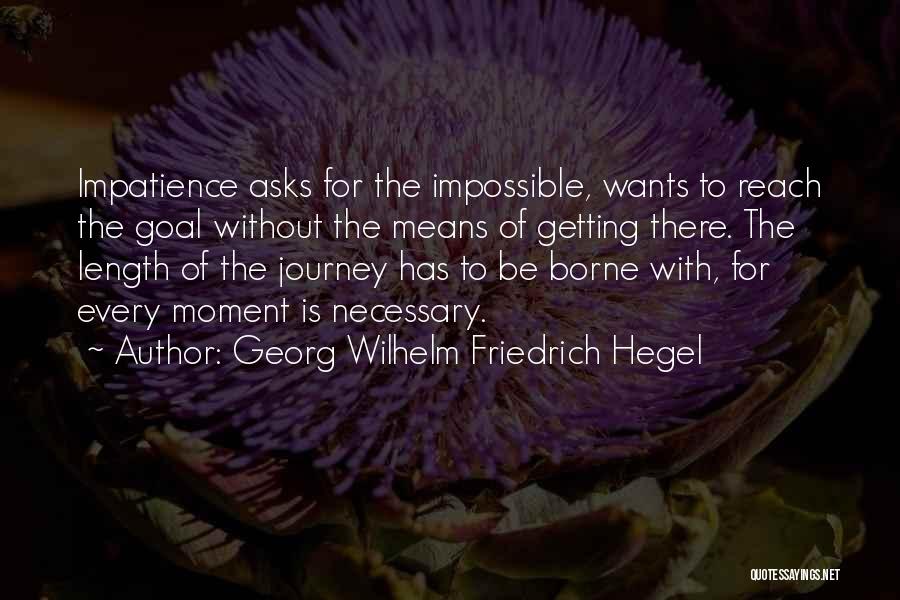
Impatience asks for the impossible, wants to reach the goal without the means of getting there. The length of the journey has to be borne with, for every moment is necessary. — Georg Wilhelm Friedrich Hegel
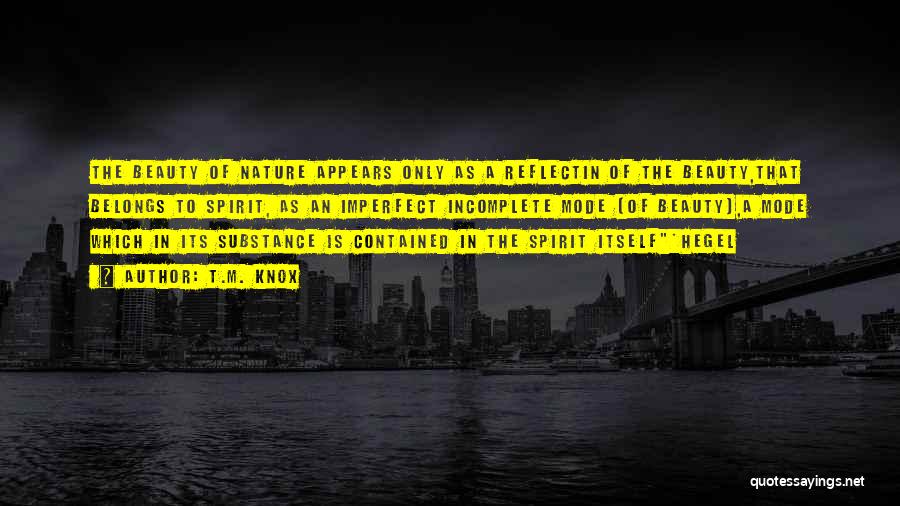
the beauty of nature appears only as a reflectin of the beauty,that belongs to spirit, as an imperfect incomplete mode [of beauty],
a mode which in its substance is contained in the spirit itself"
*hegel — T.M. Knox
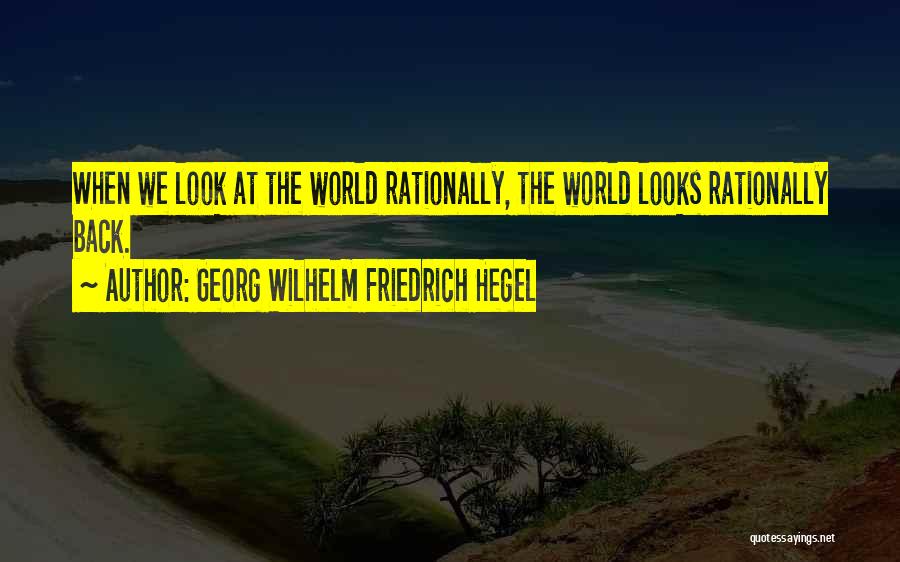
When we look at the world rationally, the world looks rationally back. — Georg Wilhelm Friedrich Hegel
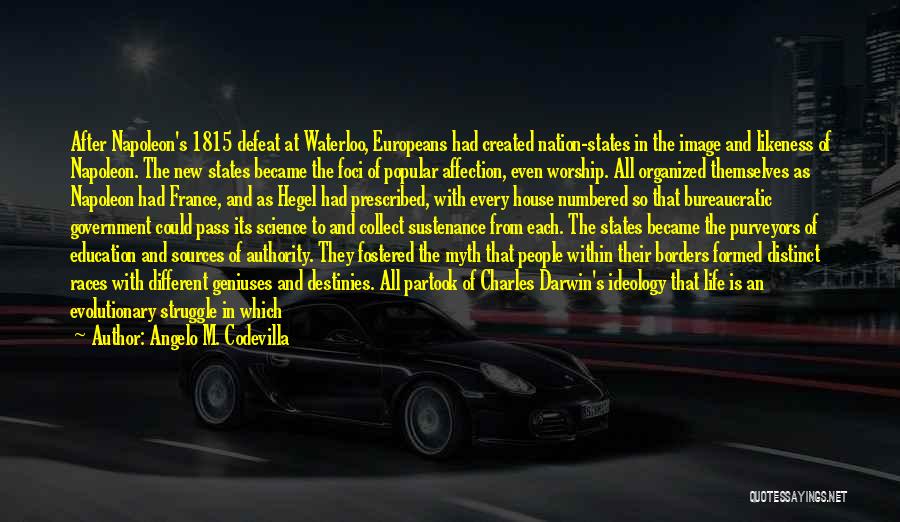
After Napoleon's 1815 defeat at Waterloo, Europeans had created nation-states in the image and likeness of Napoleon. The new states became the foci of popular affection, even worship. All organized themselves as Napoleon had France, and as Hegel had prescribed, with every house numbered so that bureaucratic government could pass its science to and collect sustenance from each. The states became the purveyors of education and sources of authority. They fostered the myth that people within their borders formed distinct races with different geniuses and destinies. All partook of Charles Darwin's ideology that life is an evolutionary struggle in which the fittest survive. — Angelo M. Codevilla
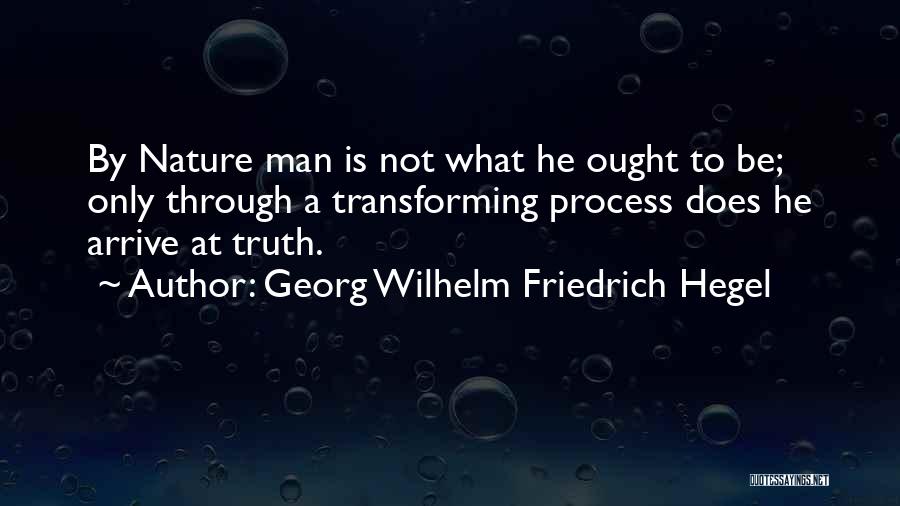
By Nature man is not what he ought to be; only through a transforming process does he arrive at truth. — Georg Wilhelm Friedrich Hegel
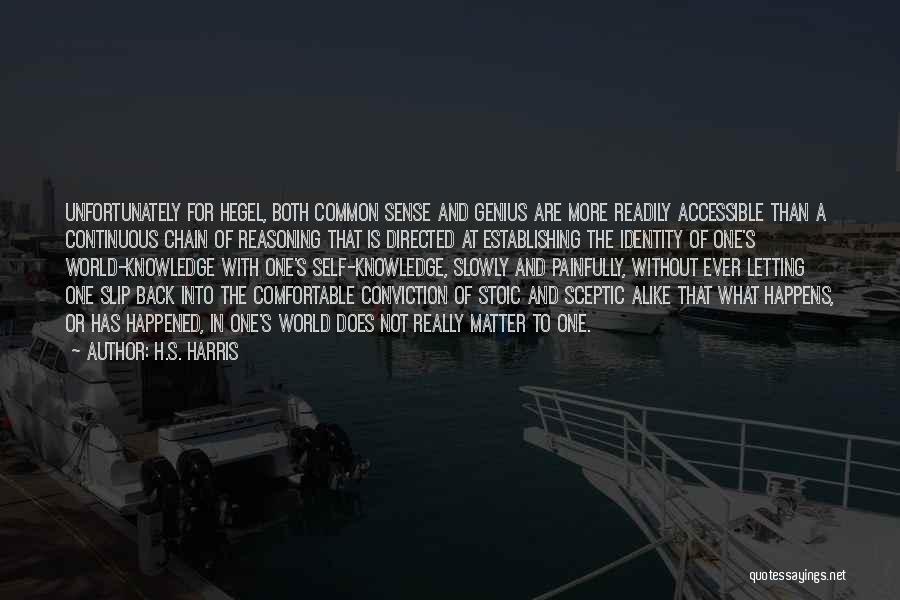
Unfortunately for Hegel, both common sense and genius are more readily accessible than a continuous chain of reasoning that is directed at establishing the identity of one's world-knowledge with one's self-knowledge, slowly and painfully, without ever letting one slip back into the comfortable conviction of Stoic and Sceptic alike that what happens, or has happened, in one's world does not really matter to one. — H.S. Harris
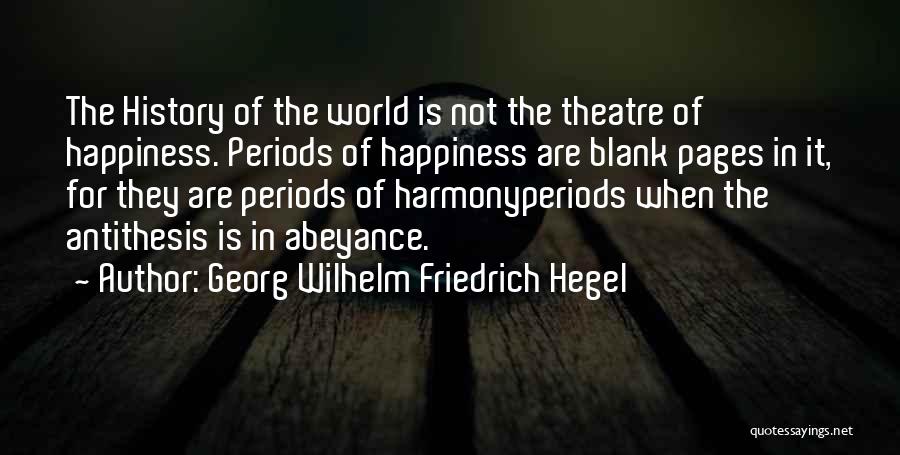
The History of the world is not the theatre of happiness. Periods of happiness are blank pages in it, for they are periods of harmony
periods when the antithesis is in abeyance. — Georg Wilhelm Friedrich Hegel
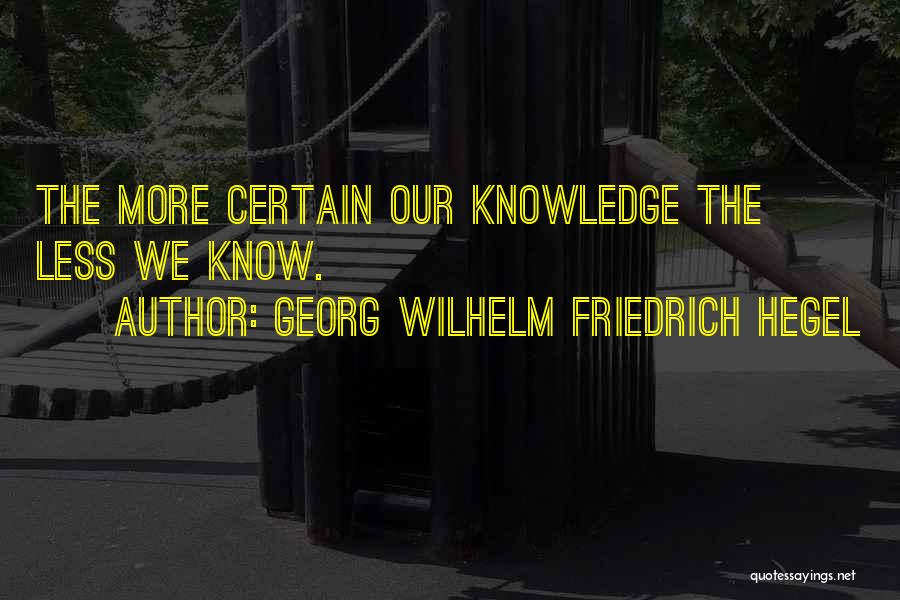
The more certain our knowledge the less we know. — Georg Wilhelm Friedrich Hegel
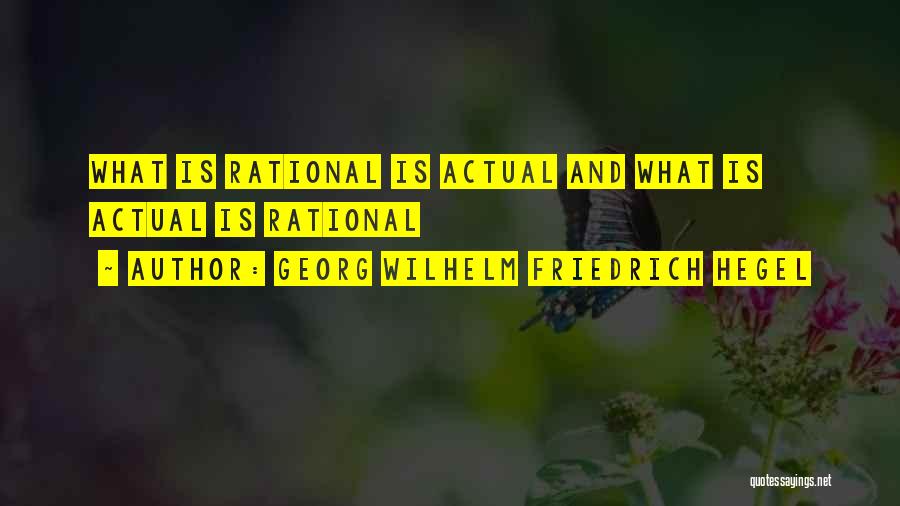
What is rational is actual and what is actual is rational — Georg Wilhelm Friedrich Hegel
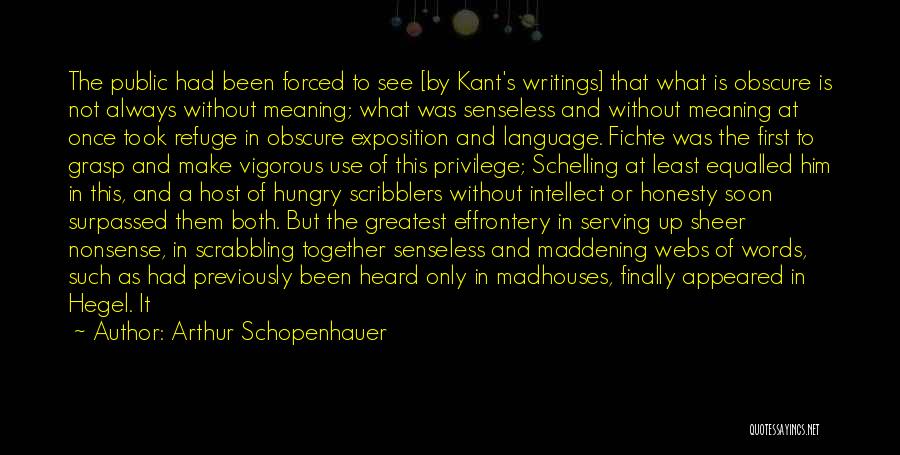
The public had been forced to see [by Kant's writings] that what is obscure is not always without meaning; what was senseless and without meaning at once took refuge in obscure exposition and language. Fichte was the first to grasp and make vigorous use of this privilege; Schelling at least equalled him in this, and a host of hungry scribblers without intellect or honesty soon surpassed them both. But the greatest effrontery in serving up sheer nonsense, in scrabbling together senseless and maddening webs of words, such as had previously been heard only in madhouses, finally appeared in Hegel. It became the instrument of the most ponderous and general mystification that has ever existed, with a result that will seem incredible to posterity, and be a lasting monument of German stupidity. — Arthur Schopenhauer
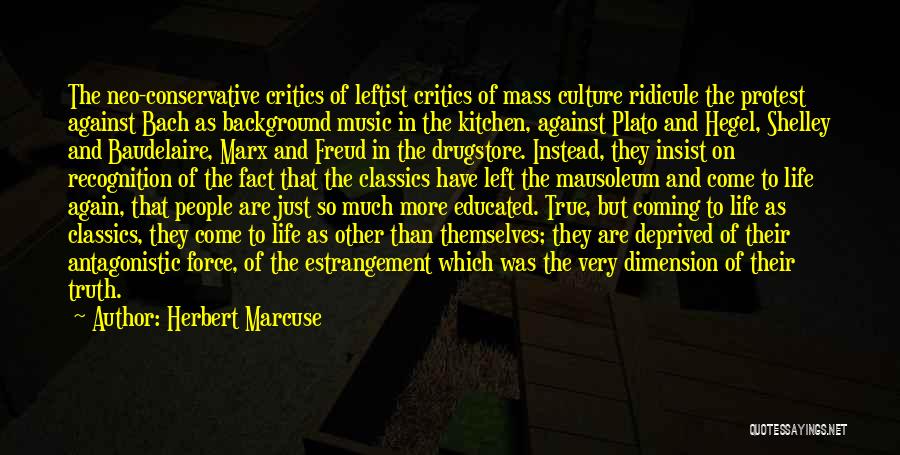
The neo-conservative critics of leftist critics of mass culture ridicule the protest against Bach as background music in the kitchen, against Plato and Hegel, Shelley and Baudelaire, Marx and Freud in the drugstore. Instead, they insist on recognition of the fact that the classics have left the mausoleum and come to life again, that people are just so much more educated. True, but coming to life as classics, they come to life as other than themselves; they are deprived of their antagonistic force, of the estrangement which was the very dimension of their truth. — Herbert Marcuse
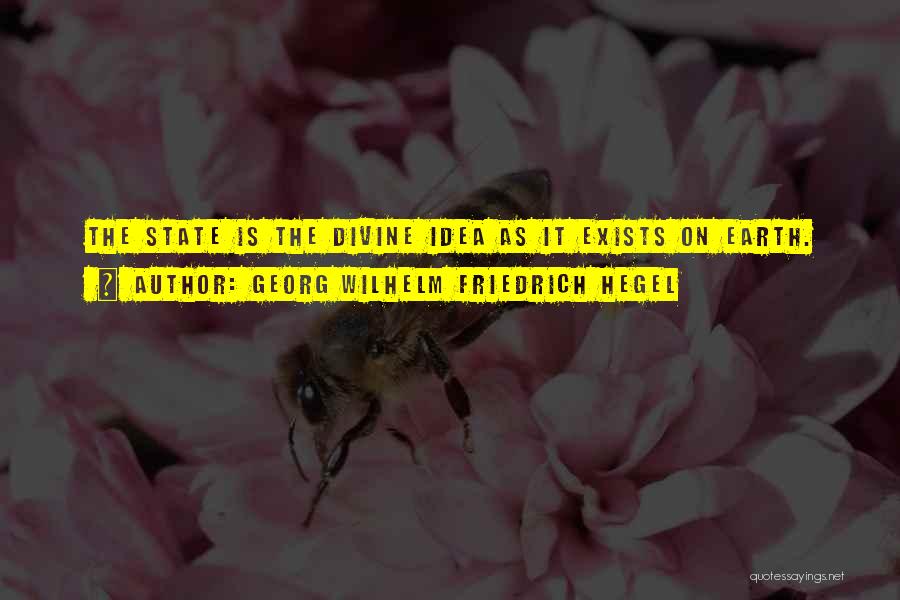
The State is the Divine idea as it exists on Earth. — Georg Wilhelm Friedrich Hegel
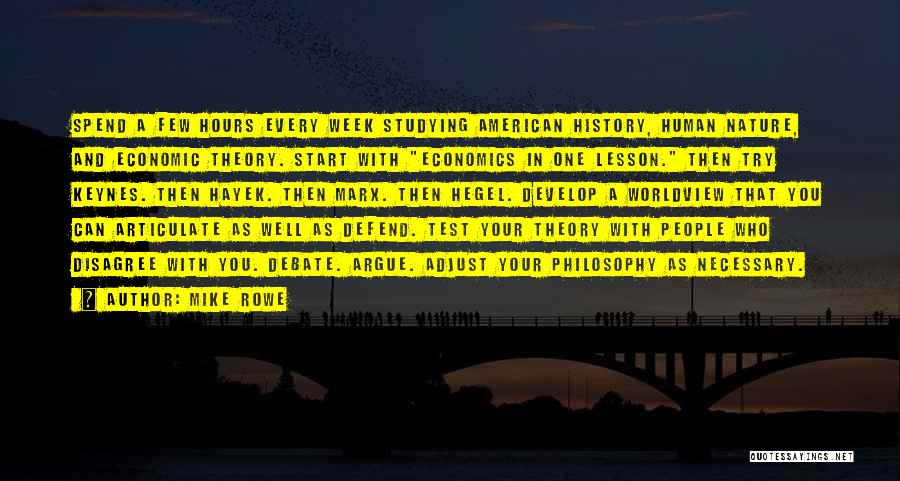
Spend a few hours every week studying American history, human nature, and economic theory. Start with "Economics in One Lesson." Then try Keynes. Then Hayek. Then Marx. Then Hegel. Develop a worldview that you can articulate as well as defend. Test your theory with people who disagree with you. Debate. Argue. Adjust your philosophy as necessary. — Mike Rowe
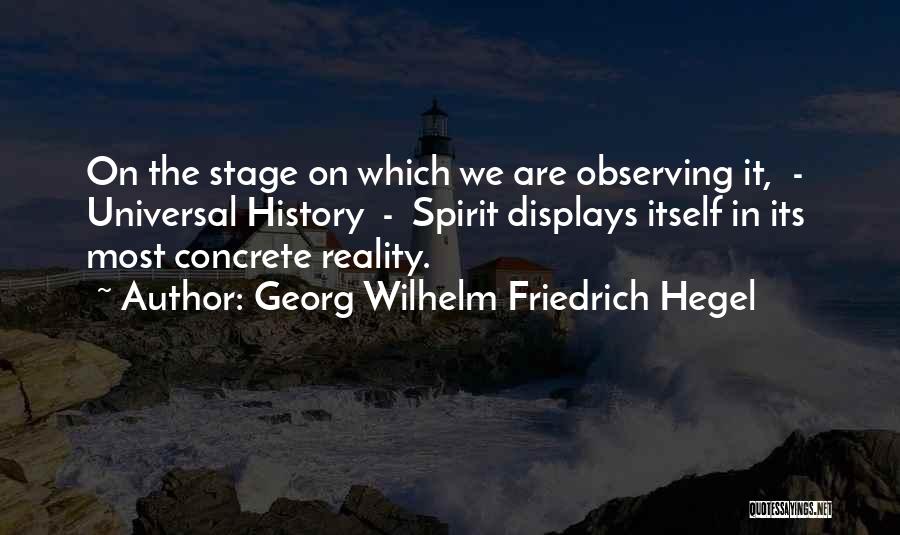
On the stage on which we are observing it, - Universal History - Spirit displays itself in its most concrete reality. — Georg Wilhelm Friedrich Hegel
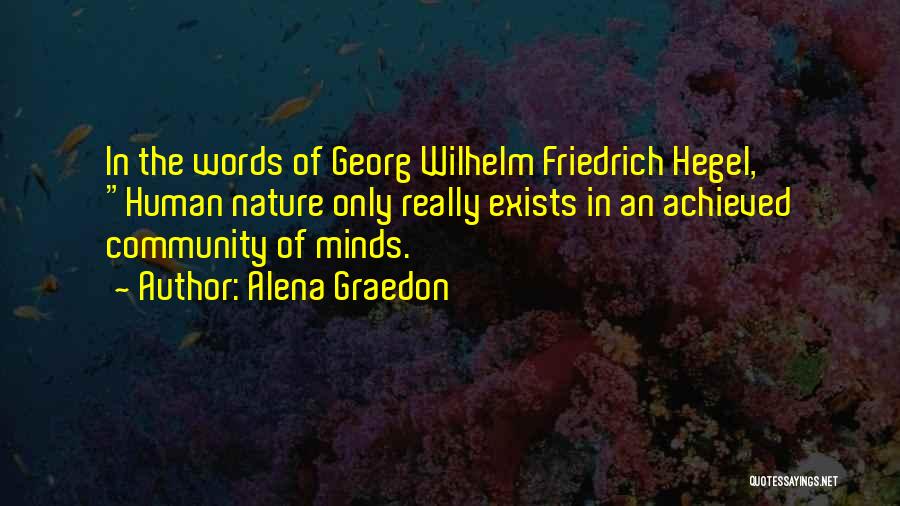
In the words of Georg Wilhelm Friedrich Hegel, "Human nature only really exists in an achieved community of minds. — Alena Graedon
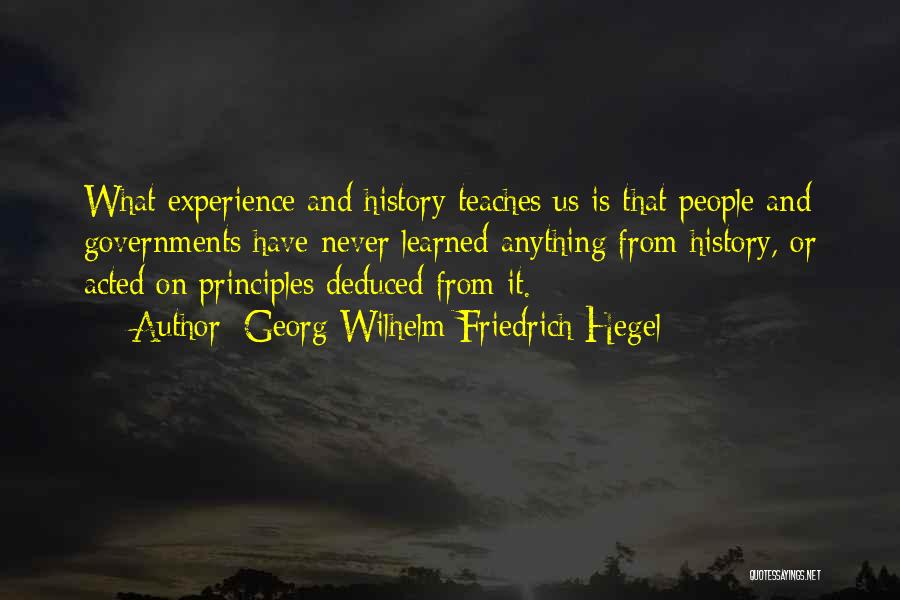
What experience and history teaches us is that people and governments have never learned anything from history, or acted on principles deduced from it. — Georg Wilhelm Friedrich Hegel
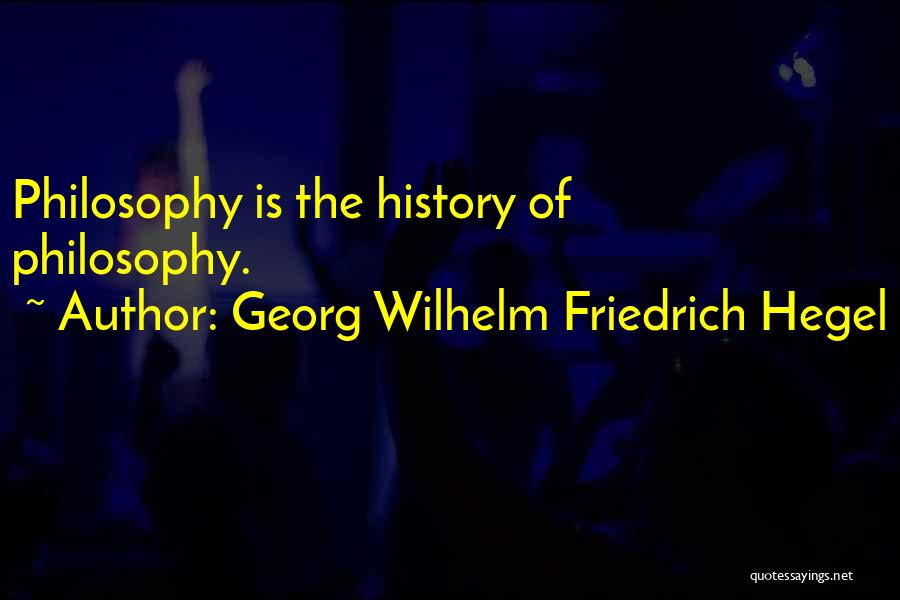
Philosophy is the history of philosophy. — Georg Wilhelm Friedrich Hegel
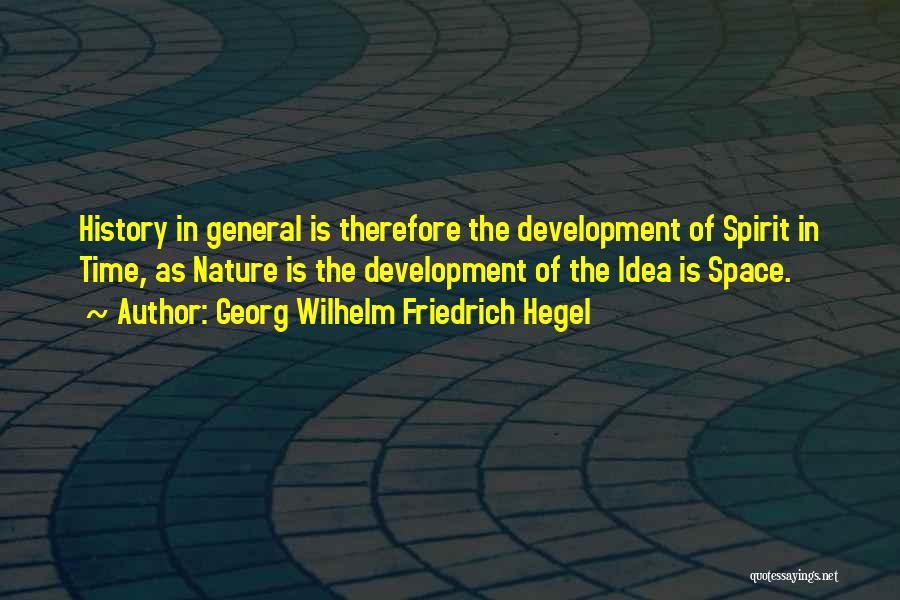
History in general is therefore the development of Spirit in Time, as Nature is the development of the Idea is Space. — Georg Wilhelm Friedrich Hegel
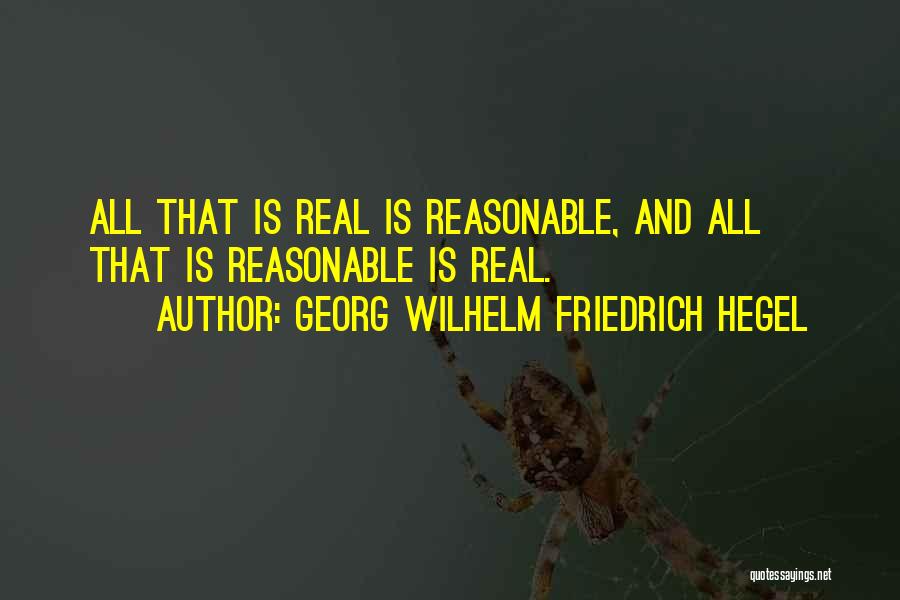
All that is real is reasonable, and all that is reasonable is real. — Georg Wilhelm Friedrich Hegel
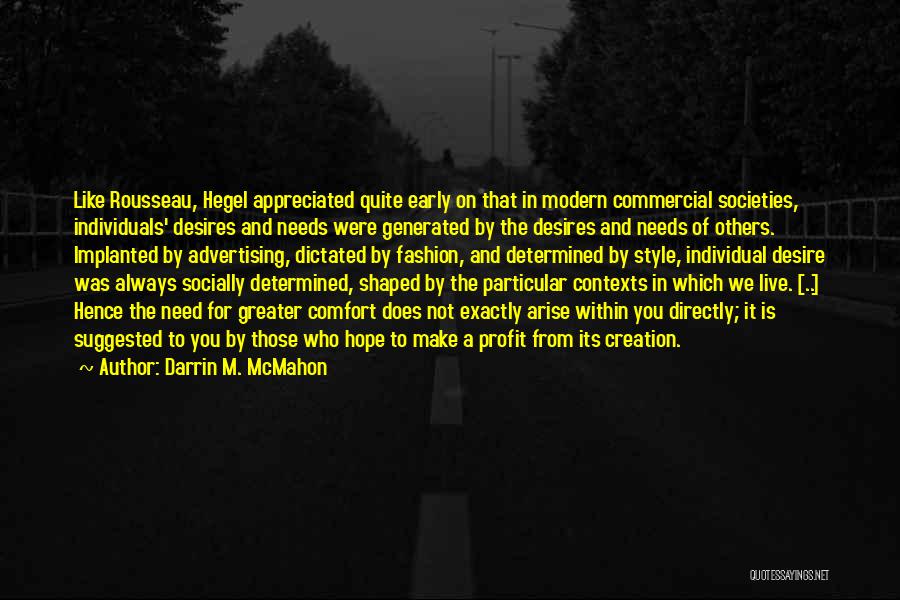
Like Rousseau, Hegel appreciated quite early on that in modern commercial societies, individuals' desires and needs were generated by the desires and needs of others. Implanted by advertising, dictated by fashion, and determined by style, individual desire was always socially determined, shaped by the particular contexts in which we live. [..] Hence the need for greater comfort does not exactly arise within you directly; it is suggested to you by those who hope to make a profit from its creation. — Darrin M. McMahon
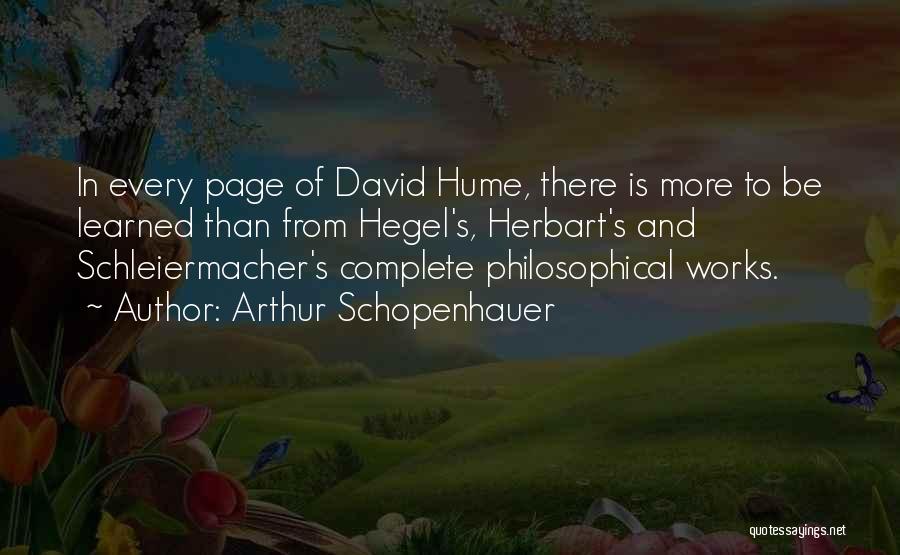
In every page of David Hume, there is more to be learned than from Hegel's, Herbart's and Schleiermacher's complete philosophical works. — Arthur Schopenhauer
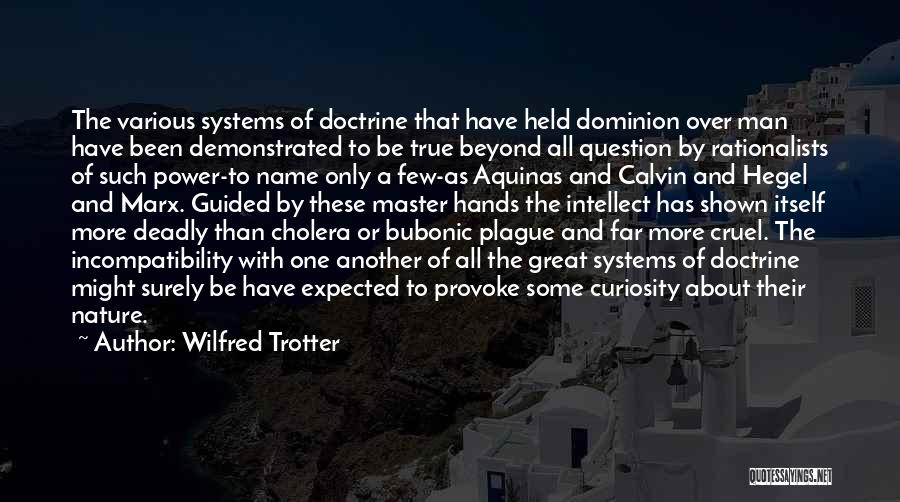
The various systems of doctrine that have held dominion over man have been demonstrated to be true beyond all question by rationalists of such power-to name only a few-as Aquinas and Calvin and Hegel and Marx. Guided by these master hands the intellect has shown itself more deadly than cholera or bubonic plague and far more cruel. The incompatibility with one another of all the great systems of doctrine might surely be have expected to provoke some curiosity about their nature. — Wilfred Trotter
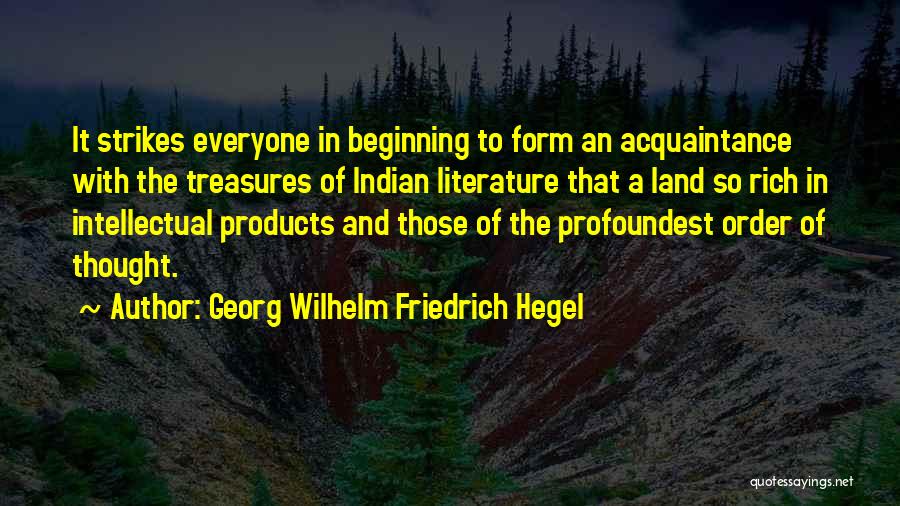
It strikes everyone in beginning to form an acquaintance with the treasures of Indian literature that a land so rich in intellectual products and those of the profoundest order of thought. — Georg Wilhelm Friedrich Hegel
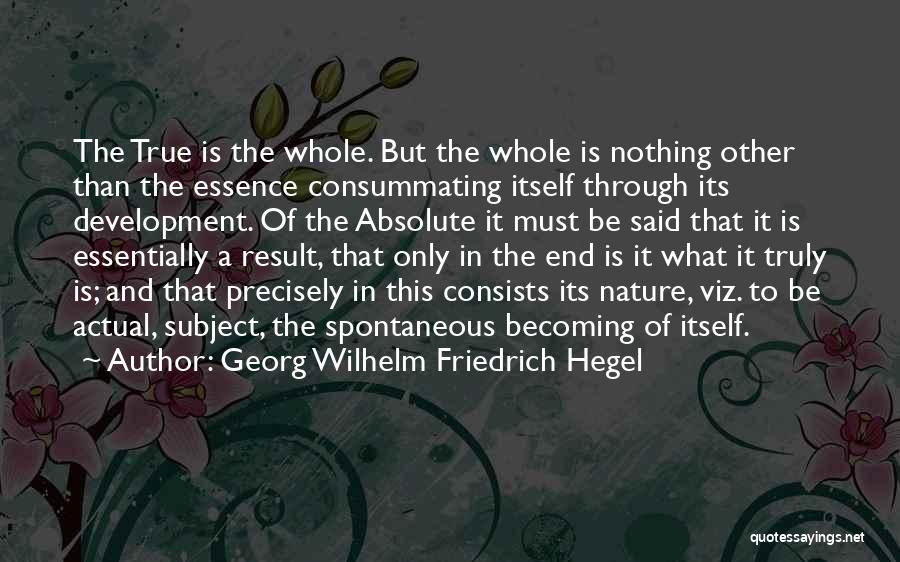
The True is the whole. But the whole is nothing other than the essence consummating itself through its development. Of the Absolute it must be said that it is essentially a result, that only in the end is it what it truly is; and that precisely in this consists its nature, viz. to be actual, subject, the spontaneous becoming of itself. — Georg Wilhelm Friedrich Hegel
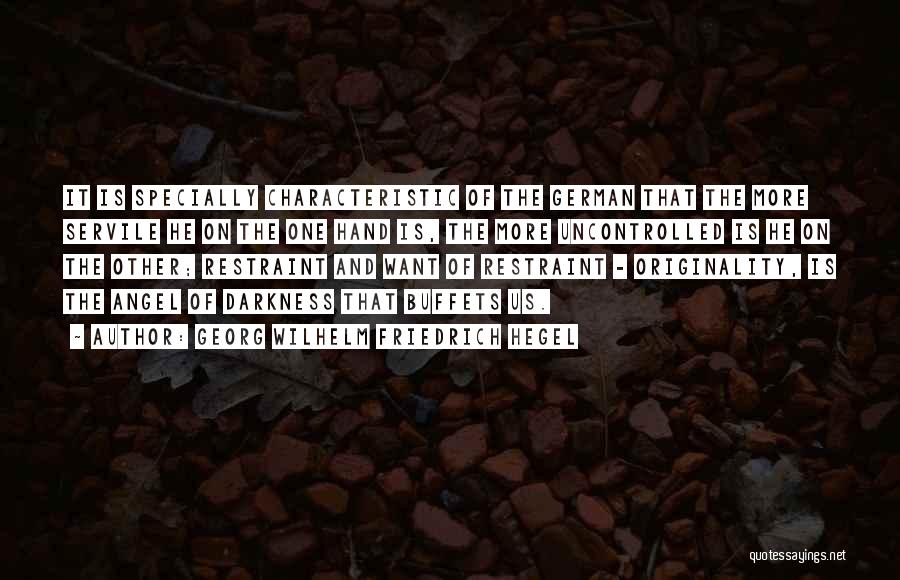
It is specially characteristic of the German that the more servile he on the one hand is, the more uncontrolled is he on the other; restraint and want of restraint - originality, is the angel of darkness that buffets us. — Georg Wilhelm Friedrich Hegel
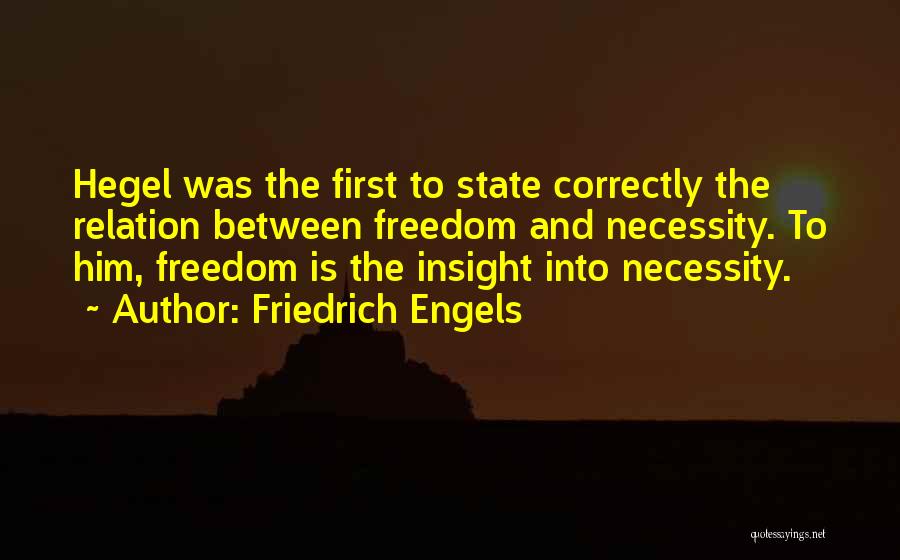
Hegel was the first to state correctly the relation between freedom and necessity. To him, freedom is the insight into necessity. — Friedrich Engels
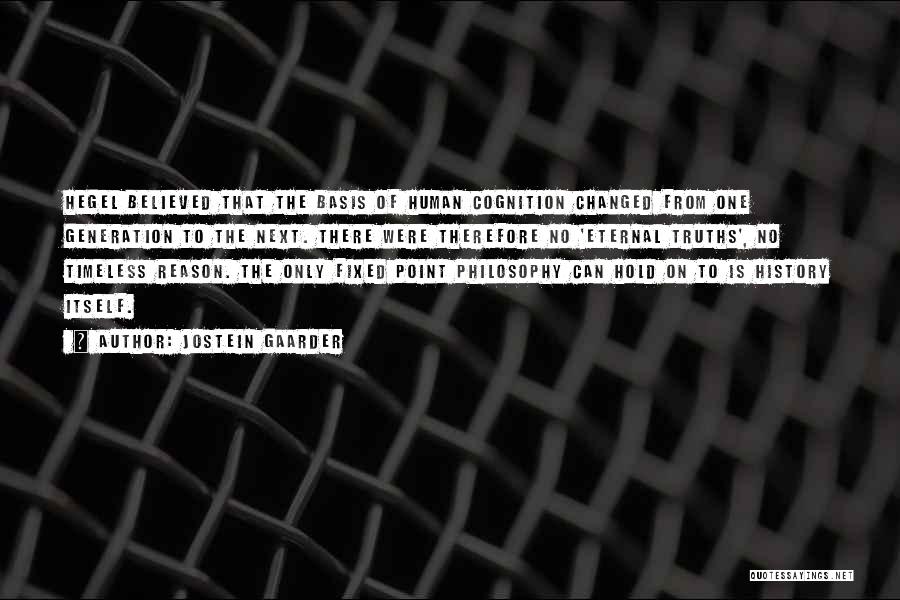
Hegel believed that the basis of human cognition changed from one generation to the next. There were therefore no 'eternal truths', no timeless reason. The only fixed point philosophy can hold on to is history itself. — Jostein Gaarder
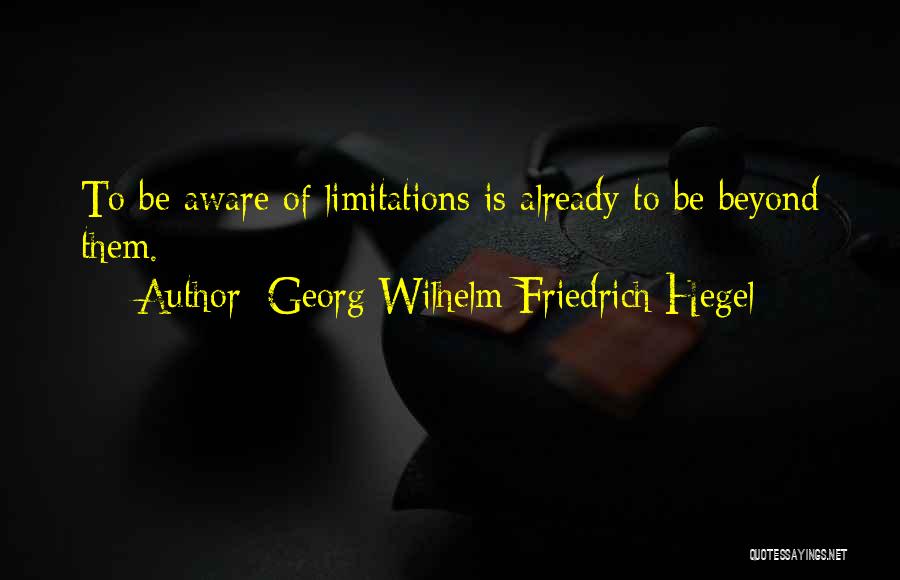
To be aware of limitations is already to be beyond them. — Georg Wilhelm Friedrich Hegel
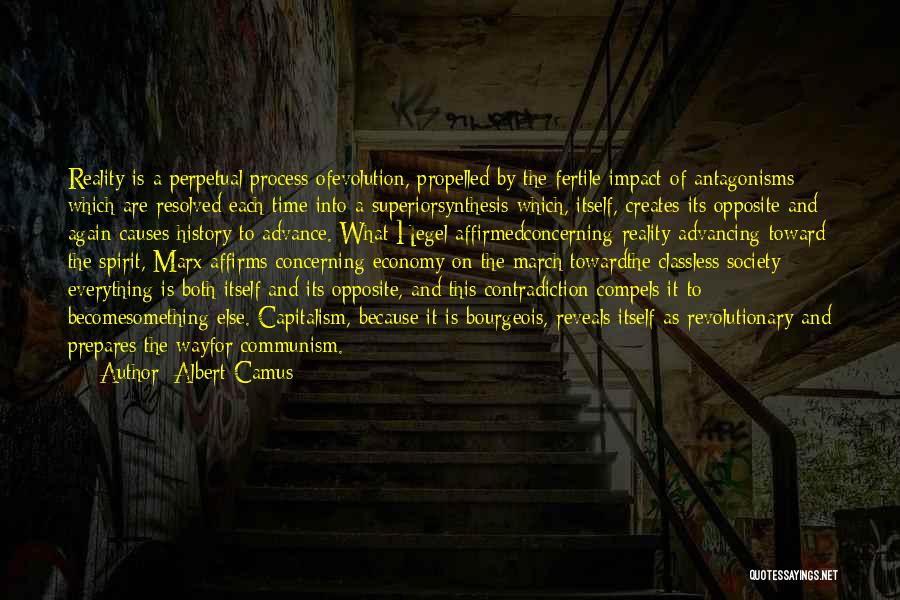
Reality is a perpetual process of
evolution, propelled by the fertile impact of antagonisms which are resolved each time into a superior
synthesis which, itself, creates its opposite and again causes history to advance. What Hegel affirmed
concerning reality advancing toward the spirit, Marx affirms concerning economy on the march toward
the classless society; everything is both itself and its opposite, and this contradiction compels it to become
something else. Capitalism, because it is bourgeois, reveals itself as revolutionary and prepares the way
for communism. — Albert Camus
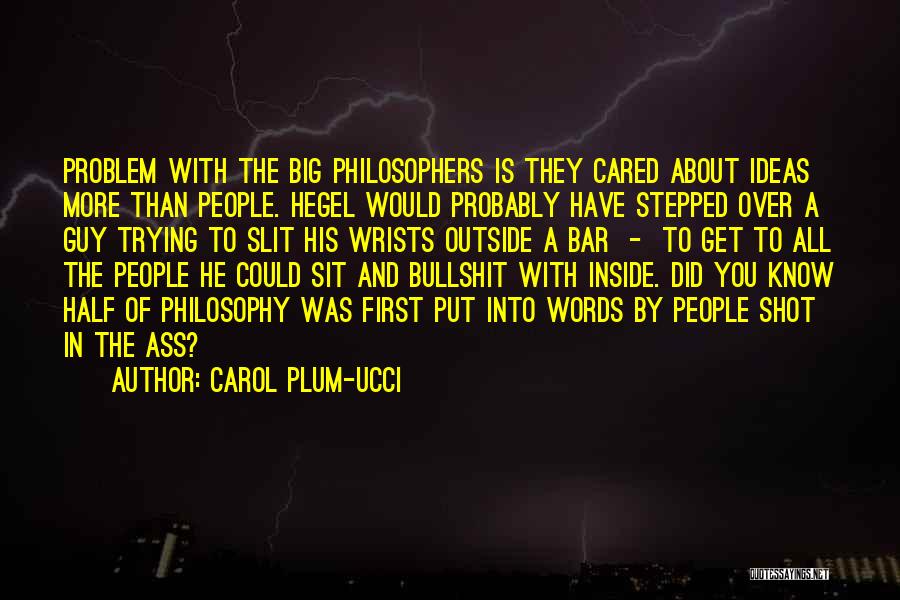
Problem with the big philosophers is they cared about ideas more than people. Hegel would probably have stepped over a guy trying to slit his wrists outside a bar - to get to all the people he could sit and bullshit with inside. Did you know half of philosophy was first put into words by people shot in the ass? — Carol Plum-Ucci
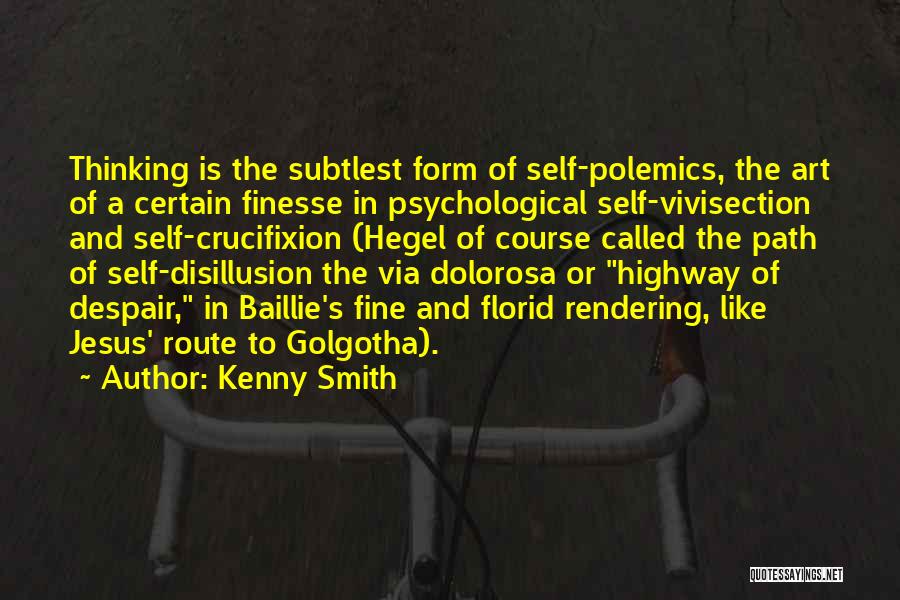
Thinking is the subtlest form of self-polemics, the art of a certain finesse in psychological self-vivisection and self-crucifixion (Hegel of course called the path of self-disillusion the via dolorosa or "highway of despair," in Baillie's fine and florid rendering, like Jesus' route to Golgotha). — Kenny Smith
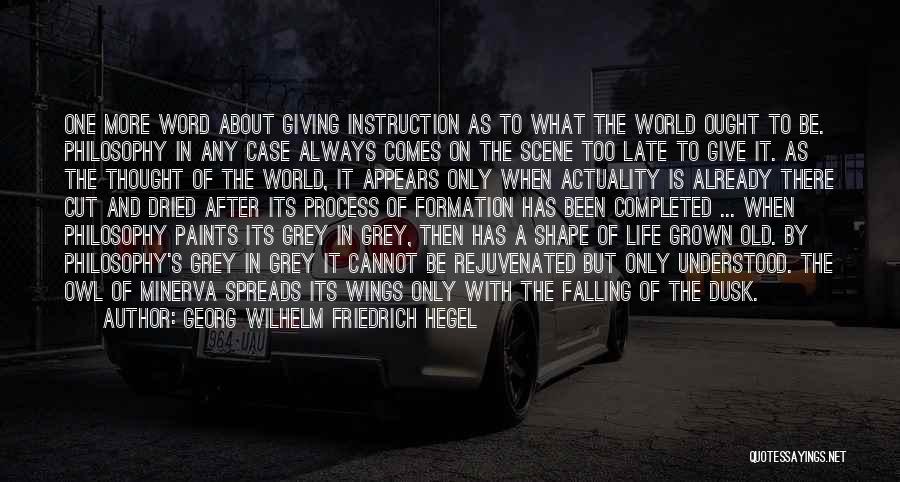
One more word about giving instruction as to what the world ought to be. Philosophy in any case always comes on the scene too late to give it. As the thought of the world, it appears only when actuality is already there cut and dried after its process of formation has been completed ...
When philosophy paints its grey in grey, then has a shape of life grown old. By philosophy's grey in grey it cannot be rejuvenated but only understood. The owl of Minerva spreads its wings only with the falling of the dusk. — Georg Wilhelm Friedrich Hegel
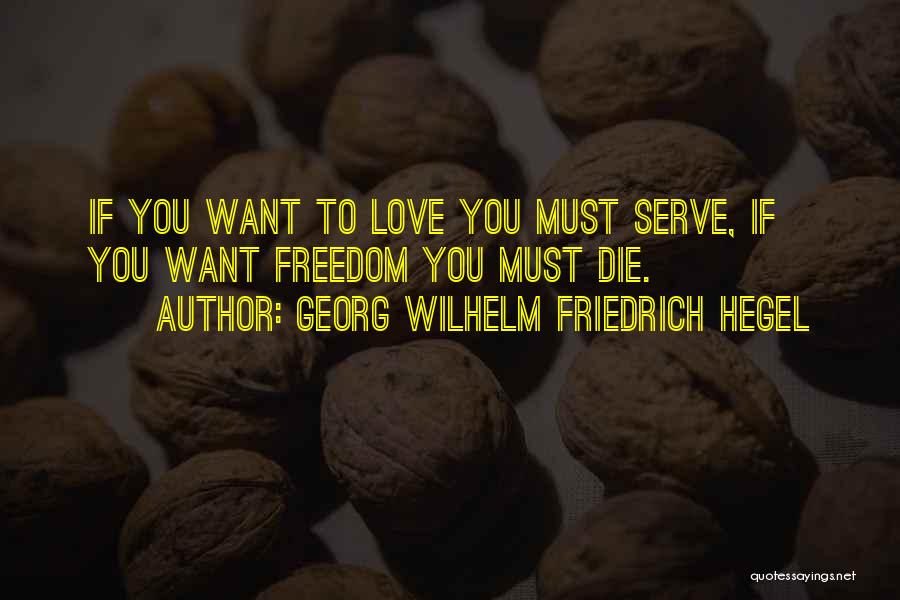
If you want to love you must serve, if you want freedom you must die. — Georg Wilhelm Friedrich Hegel
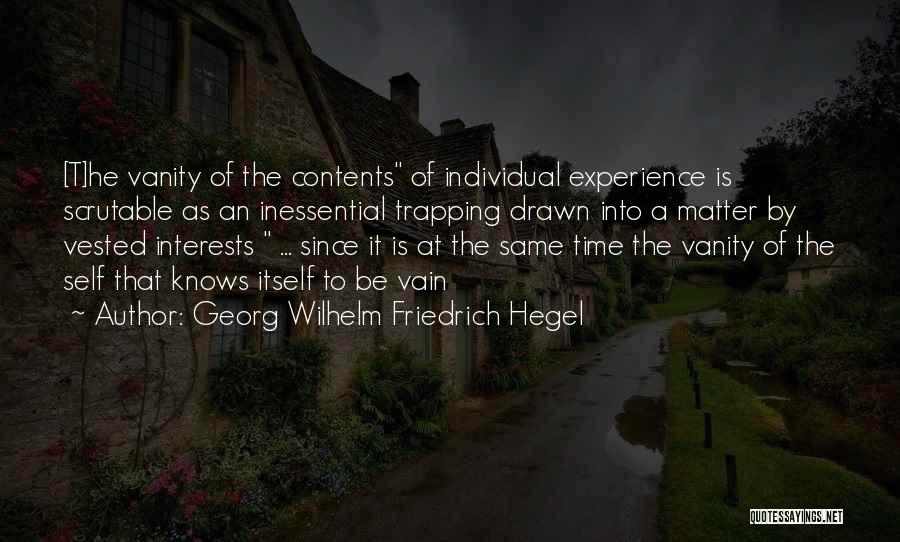
[T]he vanity of the contents" of individual experience is scrutable as an inessential trapping drawn into a matter by vested interests " ... since it is at the same time the vanity of the self that knows itself to be vain — Georg Wilhelm Friedrich Hegel
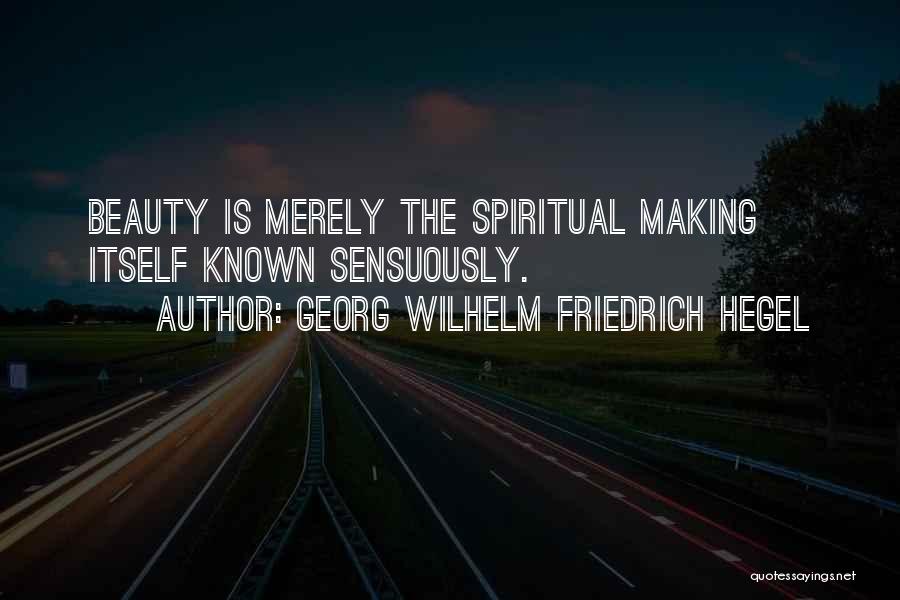
Beauty is merely the Spiritual making itself known sensuously. — Georg Wilhelm Friedrich Hegel

All the worth which the human being possesses, all spiritual reality, he possesses only through the State ... For Truth is the unity of the universal and subjective will; and the Universal is to be found in the State, in its laws, its universal and rational arrangements. The State is the Divine Idea as it exists on earth. We have in it, therefore, the object of history in a more definite shape than before; that in which Freedom obtains objectivity. — Georg Wilhelm Friedrich Hegel

Lacking strength beauty hates the understanding for asking of her what it cannot do but the life of spirit is not the life that shrinks from death and keeps itself untouched by devastation, but rather the life that endures it and maintains itself in it. It wins its truth only when, in utter dismemberment, it finds itself. It is this power, not as something positive, which closes its eyes to the negative as when we say of something that it is nothing or is false, and then having done with it, turn away and pass on to something else; on the contrary, spirit is this power only by looking the negative in the face, and tarrying with it. This tarrying with the negative is the magical power that converts it into being. — Georg Wilhelm Friedrich Hegel
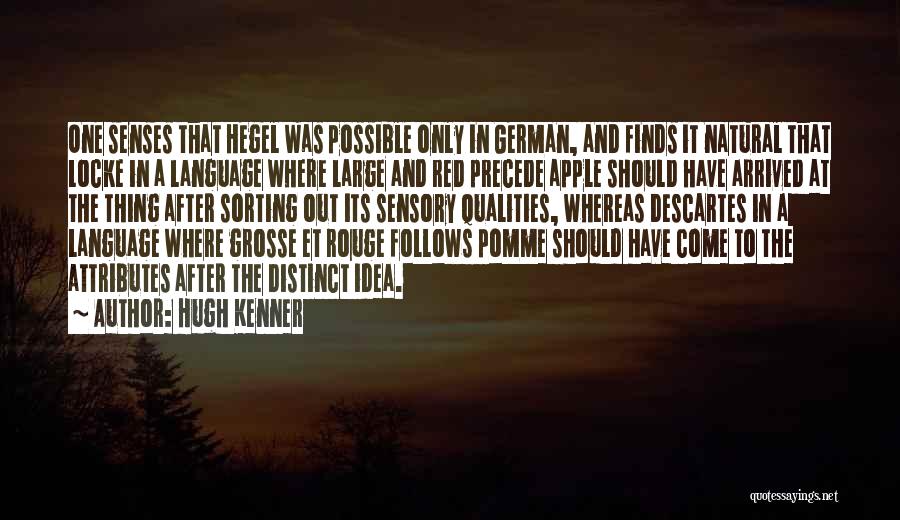
One senses that Hegel was possible only in German, and finds it natural that Locke in a language where large and red precede apple should have arrived at the thing after sorting out its sensory qualities, whereas Descartes in a language where grosse et rouge follows pomme should have come to the attributes after the distinct idea. — Hugh Kenner

For Hegel, by contrast, liberal society is a reciprocal and equal agreement among citizens to mutually recognize each other — Francis Fukuyama
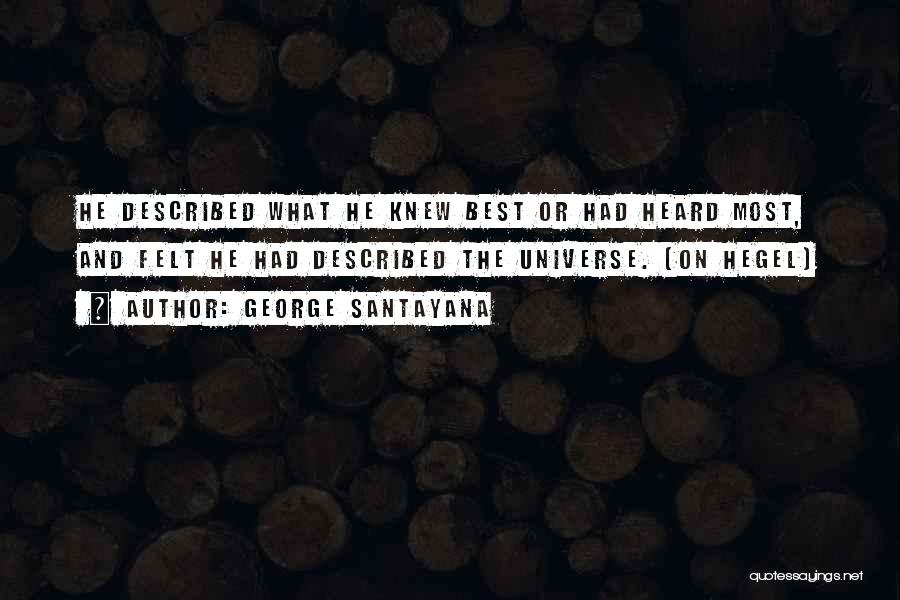
He described what he knew best or had heard most, and felt he had described the universe. (on Hegel) — George Santayana
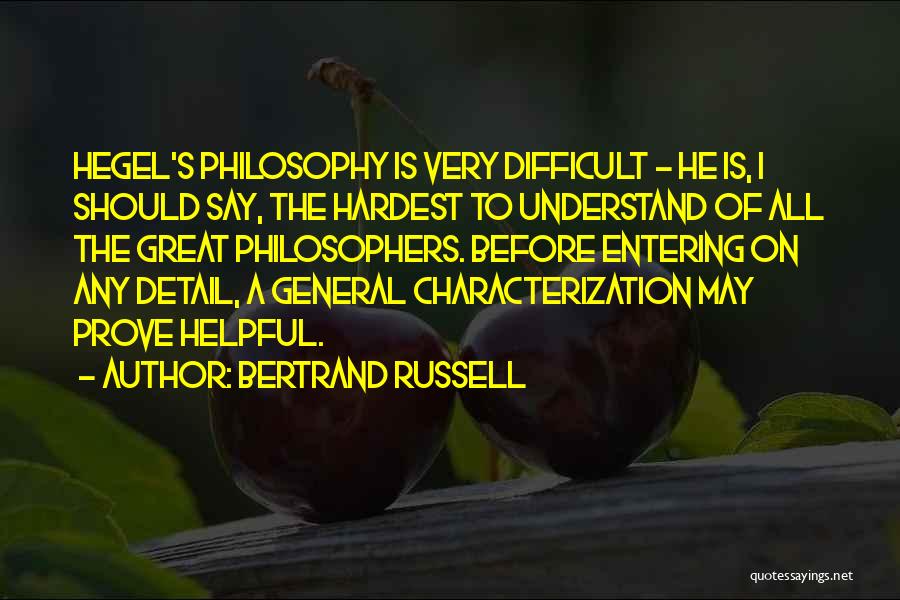
Hegel's philosophy is very difficult - he is, I should say, the hardest to understand of all the great philosophers. Before entering on any detail, a general characterization may prove helpful. — Bertrand Russell
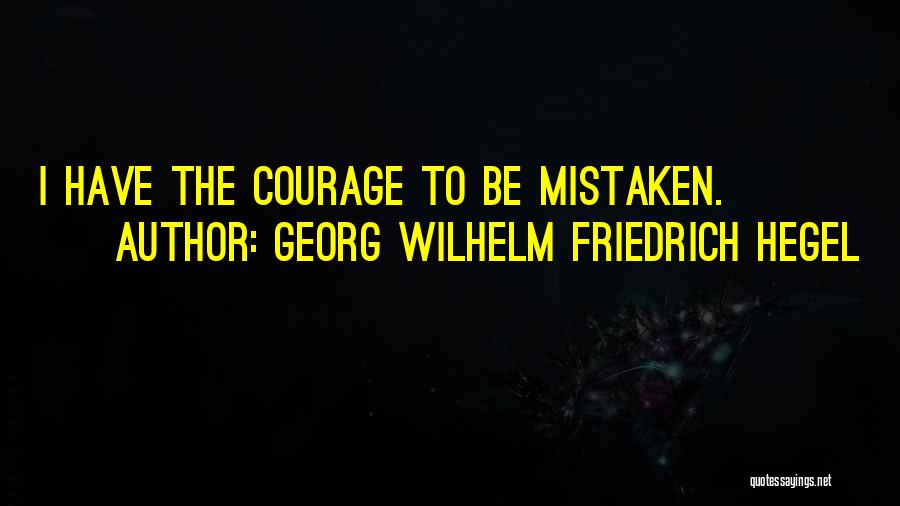
I have the courage to be mistaken. — Georg Wilhelm Friedrich Hegel
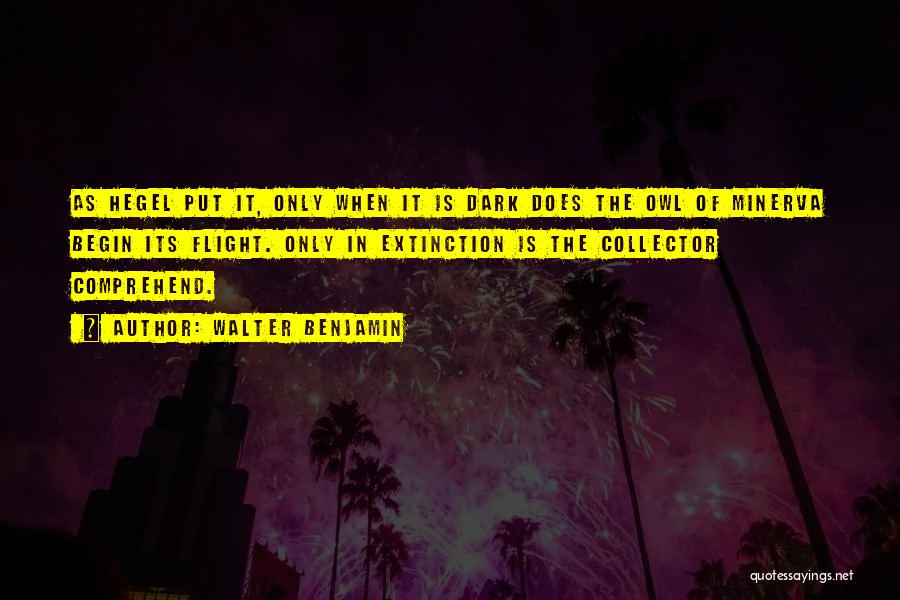
As Hegel put it, only when it is dark does the owl of Minerva begin its flight. Only in extinction is the collector comprehend. — Walter Benjamin
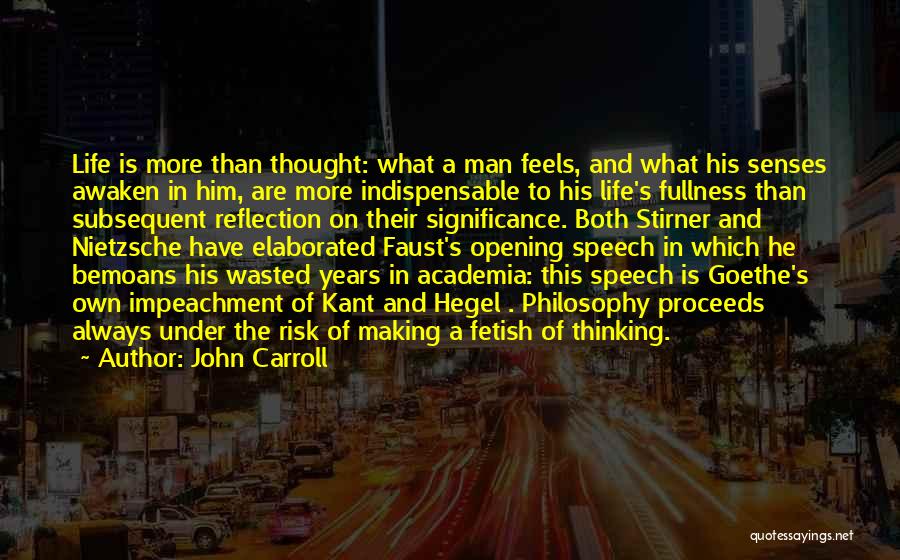
Life is more than thought: what a man feels, and what his senses awaken in him, are more indispensable to his life's fullness than subsequent reflection on their significance. Both Stirner and Nietzsche have elaborated Faust's opening speech in which he bemoans his wasted years in academia: this speech is Goethe's own impeachment of Kant and Hegel . Philosophy proceeds always under the risk of making a fetish of thinking. — John Carroll
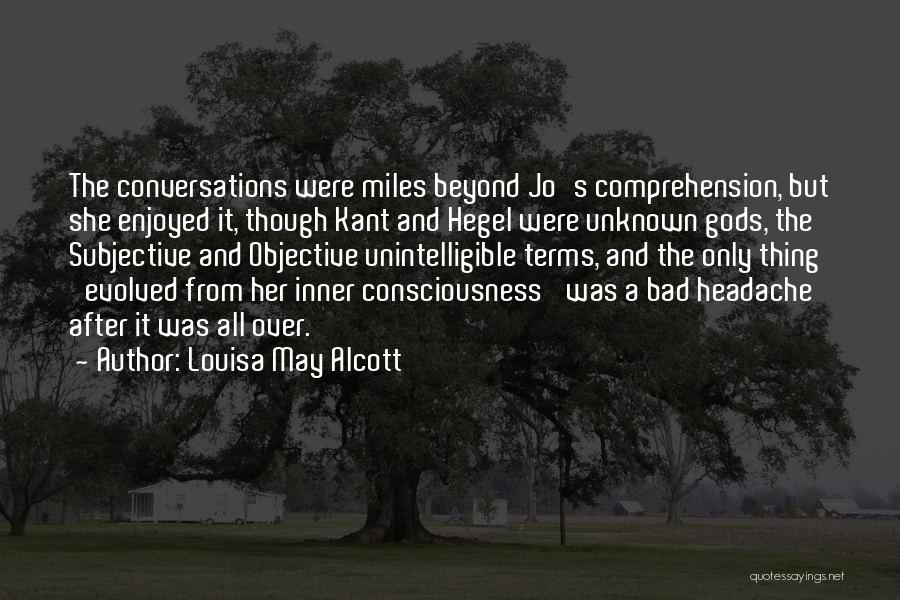
The conversations were miles beyond Jo's comprehension, but she enjoyed it, though Kant and Hegel were unknown gods, the Subjective and Objective unintelligible terms, and the only thing 'evolved from her inner consciousness' was a bad headache after it was all over. — Louisa May Alcott
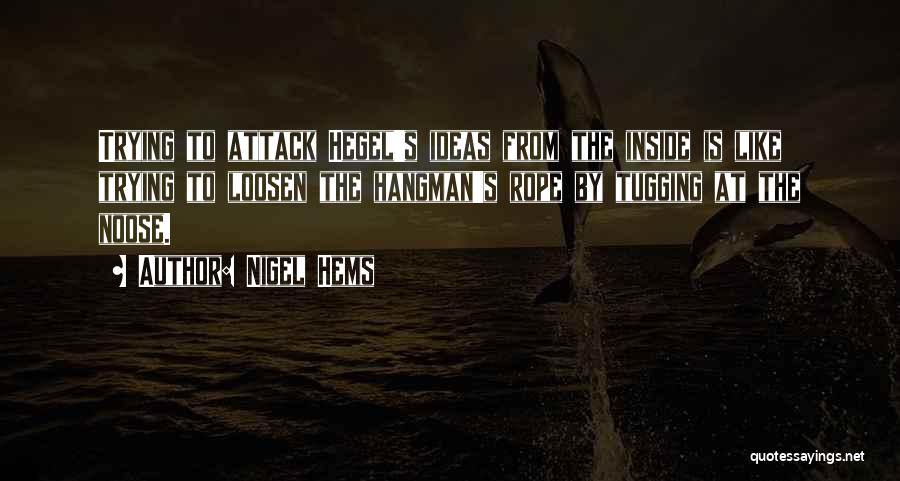
Trying to attack Hegel's ideas from the inside is like trying to loosen the hangman's rope by tugging at the noose. — Nigel Hems
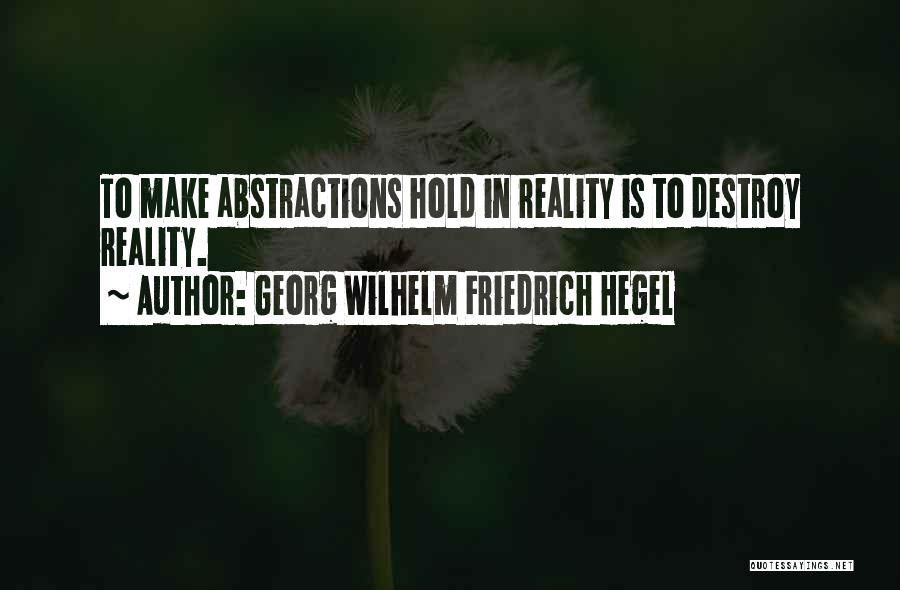
To make abstractions hold in reality is to destroy reality. — Georg Wilhelm Friedrich Hegel
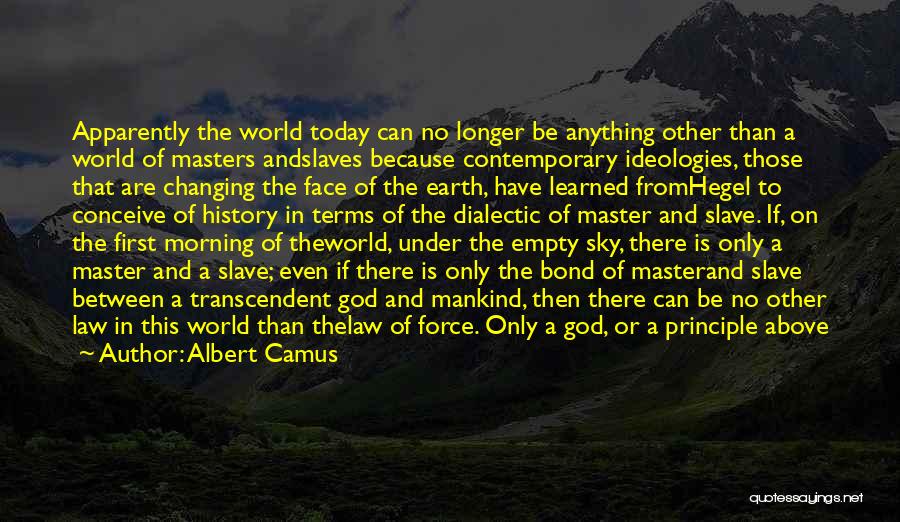
Apparently the world today can no longer be anything other than a world of masters and
slaves because contemporary ideologies, those that are changing the face of the earth, have learned from
Hegel to conceive of history in terms of the dialectic of master and slave. If, on the first morning of the
world, under the empty sky, there is only a master and a slave; even if there is only the bond of master
and slave between a transcendent god and mankind, then there can be no other law in this world than the
law of force. Only a god, or a principle above the master and the slave, could intervene and make men's
history something more than a mere chronicle of their victories and defeats. — Albert Camus

History is not the soil in which happiness grows. The periods of happiness in it are the blank pages of history. — Georg Wilhelm Friedrich Hegel
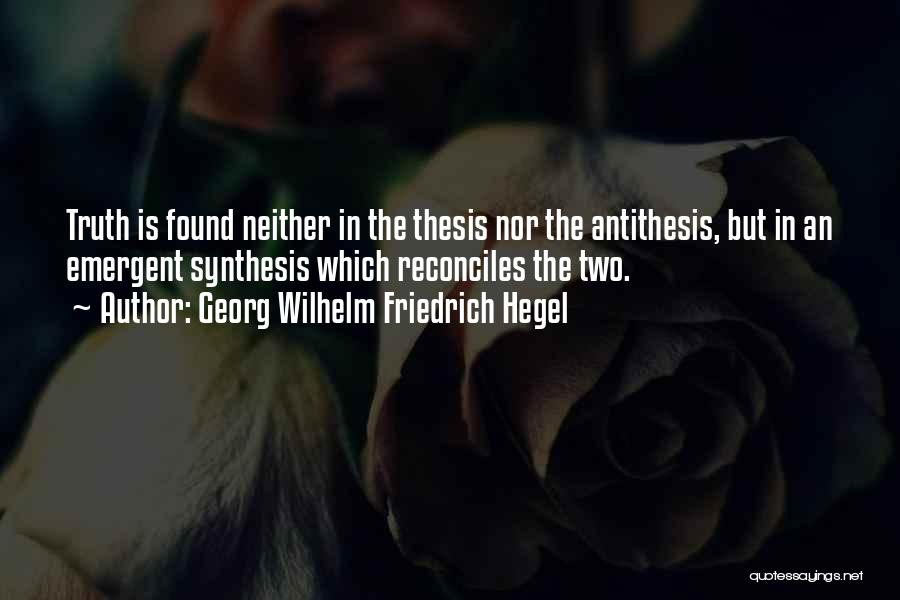
Truth is found neither in the thesis nor the antithesis, but in an emergent synthesis which reconciles the two. — Georg Wilhelm Friedrich Hegel
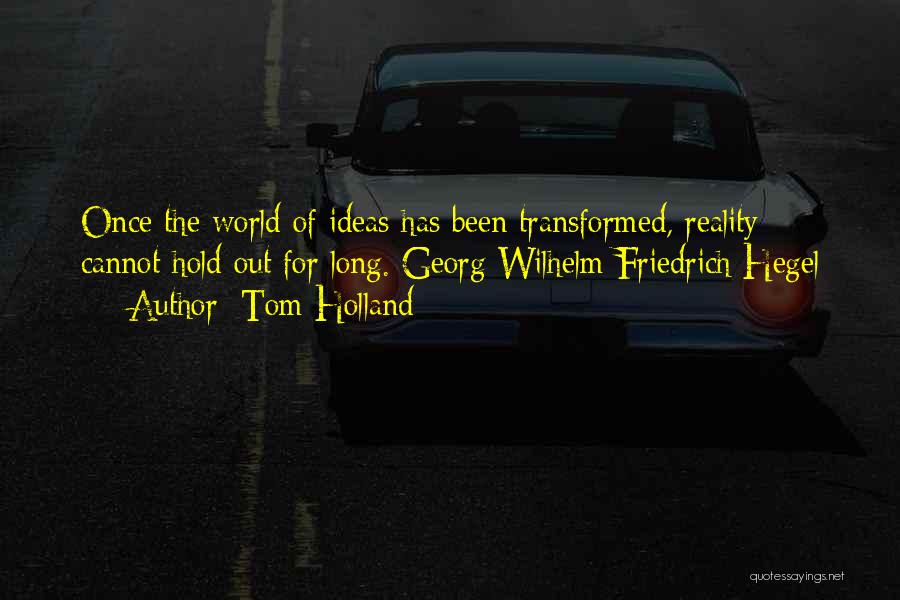
Once the world of ideas has been transformed, reality cannot hold out for long. Georg Wilhelm Friedrich Hegel — Tom Holland
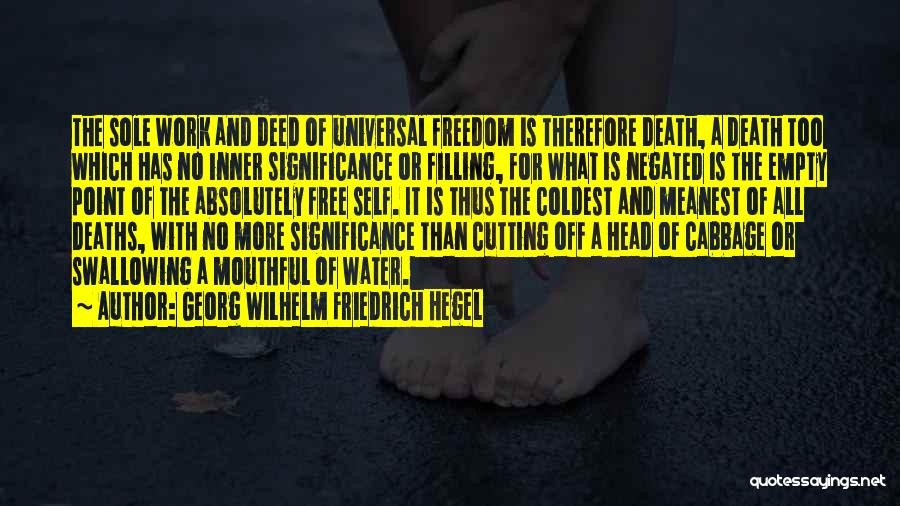
The sole work and deed of universal freedom is therefore death, a death too which has no inner significance or filling, for what is negated is the empty point of the absolutely free self. It is thus the coldest and meanest of all deaths, with no more significance than cutting off a head of cabbage or swallowing a mouthful of water. — Georg Wilhelm Friedrich Hegel
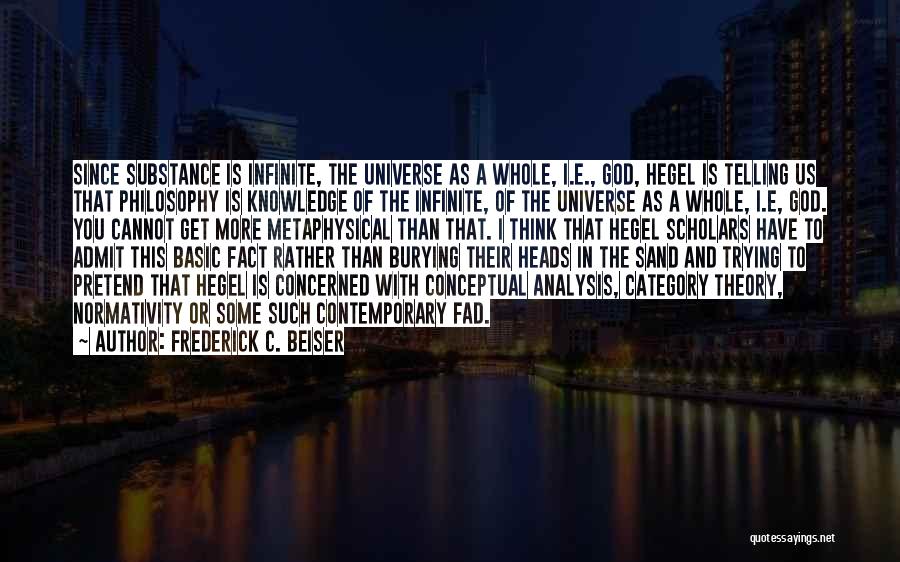
Since substance is infinite, the universe as a whole, i.e., god, Hegel is telling us that philosophy is knowledge of the infinite, of the universe as a whole, i.e, god. You cannot get more metaphysical than that. I think that Hegel scholars have to admit this basic fact rather than burying their heads in the sand and trying to pretend that Hegel is concerned with conceptual analysis, category theory, normativity or some such contemporary fad. — Frederick C. Beiser
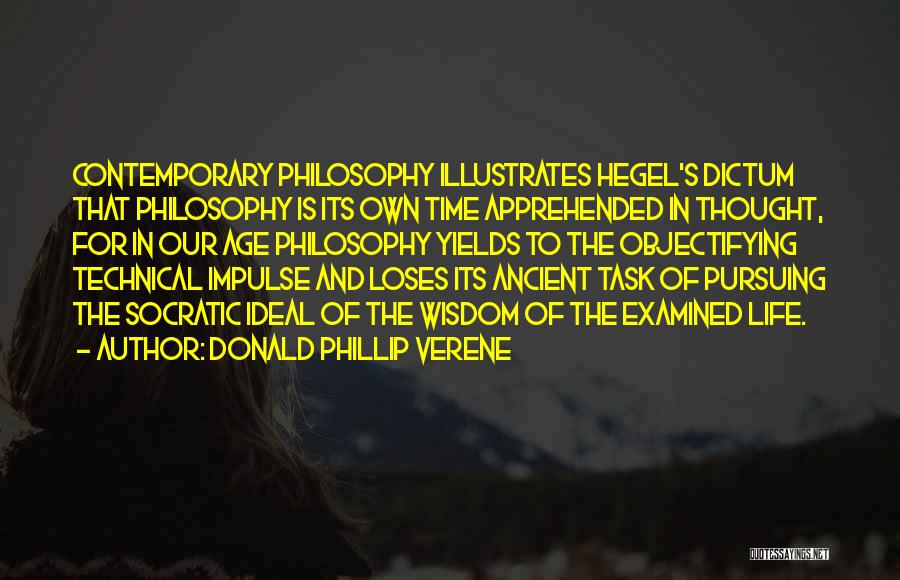
Contemporary philosophy illustrates Hegel's dictum that philosophy is its own time apprehended in thought, for in our age philosophy yields to the objectifying technical impulse and loses its ancient task of pursuing the Socratic ideal of the wisdom of the examined life. — Donald Phillip Verene
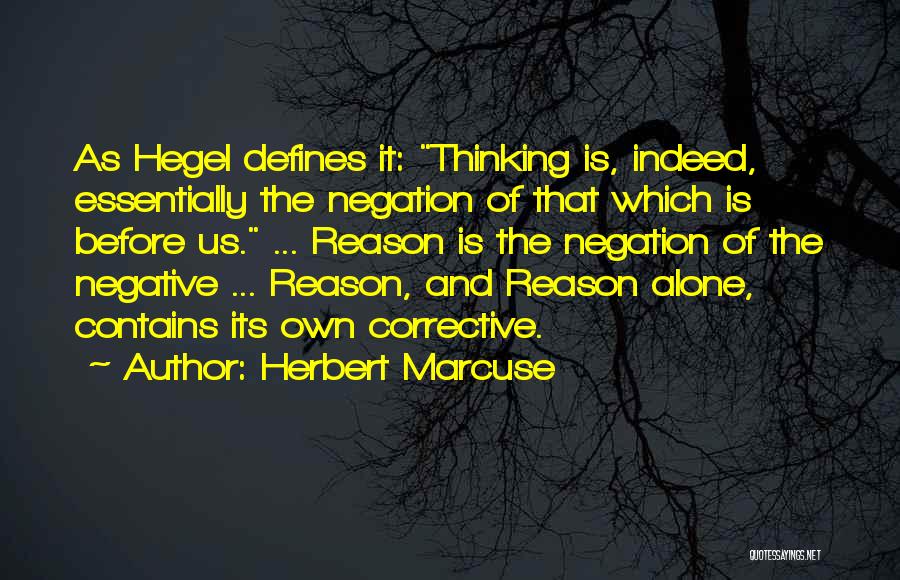
As Hegel defines it: "Thinking is, indeed, essentially the negation of that which is before us." ... Reason is the negation of the negative ... Reason, and Reason alone, contains its own corrective. — Herbert Marcuse
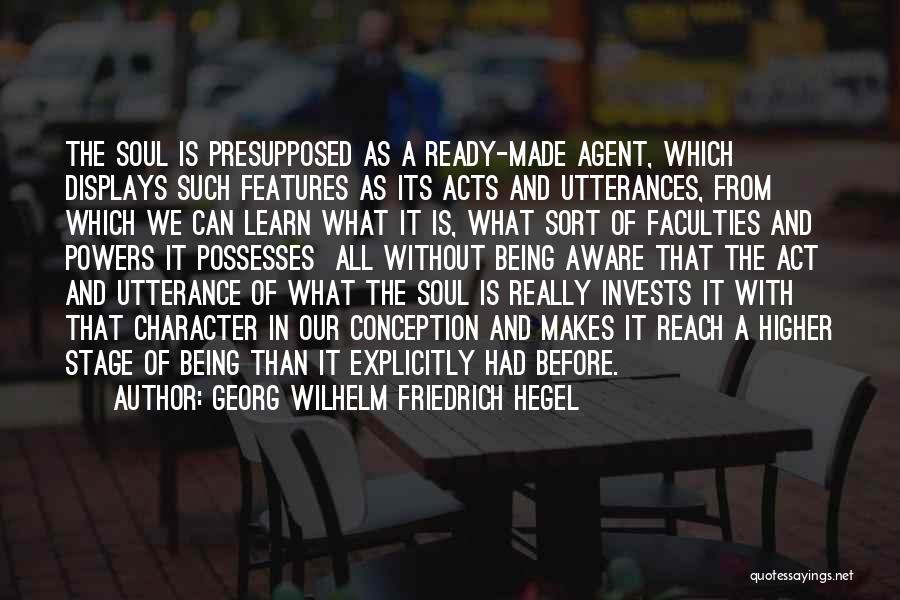
The soul is presupposed as a ready-made agent, which displays such features as its acts and utterances, from which we can learn what it is, what sort of faculties and powers it possesses
all without being aware that the act and utterance of what the soul is really invests it with that character in our conception and makes it reach a higher stage of being than it explicitly had before. — Georg Wilhelm Friedrich Hegel
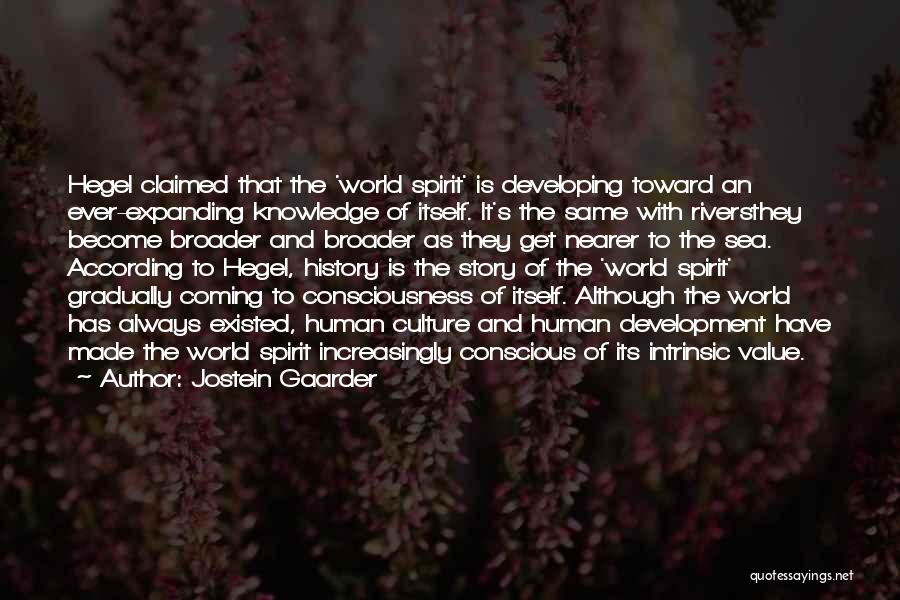
Hegel claimed that the 'world spirit' is developing toward an ever-expanding knowledge of itself. It's the same with rivers
they become broader and broader as they get nearer to the sea. According to Hegel, history is the story of the 'world spirit' gradually coming to consciousness of itself. Although the world has always existed, human culture and human development have made the world spirit increasingly conscious of its intrinsic value. — Jostein Gaarder






